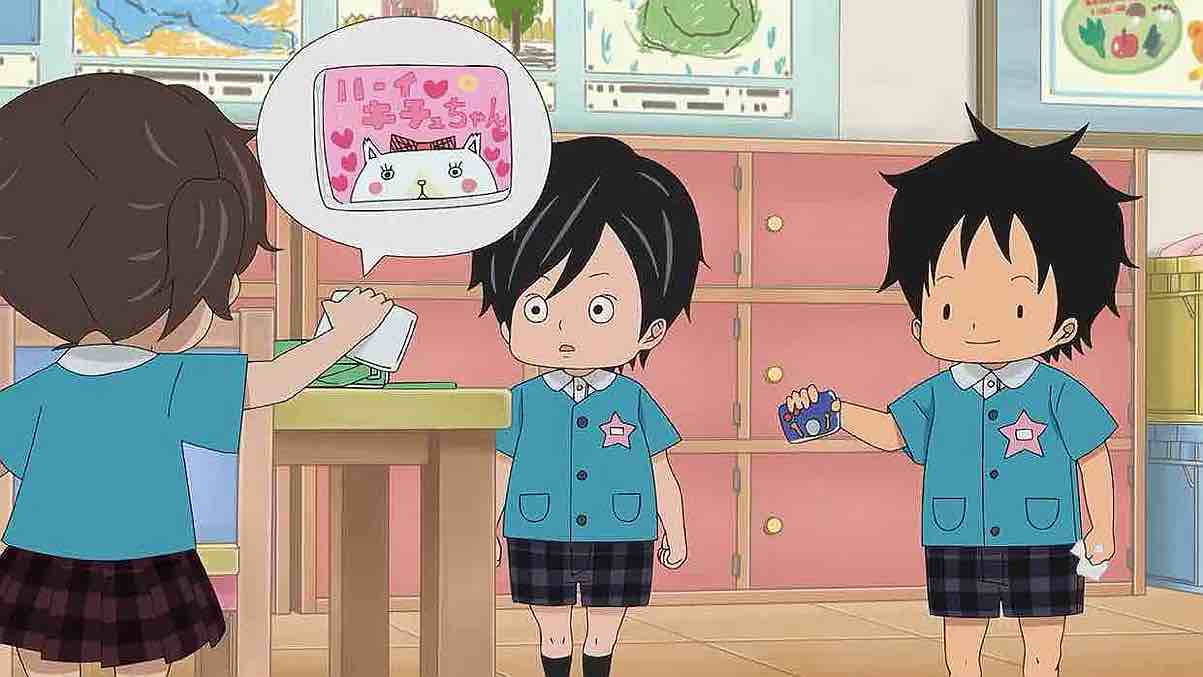 I’m trying something a little different with Kotarou wa Hitorigurashi this time. To wit, a single episode at a sitting. Ultimately it comes down to the same two conflicting urges – to see the next episode now, and to make the overall experience last as long as possible. But there’s also the matter those 1200-word opuses, which take a lot out me. Each ep of this show is a little longer than usual anyway at 27 minutes (that means the season is in effect about 11.5 eps in TV anime terms), and they each pack in a ton of content. Two at once is a mighty big bite of the apple.
I’m trying something a little different with Kotarou wa Hitorigurashi this time. To wit, a single episode at a sitting. Ultimately it comes down to the same two conflicting urges – to see the next episode now, and to make the overall experience last as long as possible. But there’s also the matter those 1200-word opuses, which take a lot out me. Each ep of this show is a little longer than usual anyway at 27 minutes (that means the season is in effect about 11.5 eps in TV anime terms), and they each pack in a ton of content. Two at once is a mighty big bite of the apple.
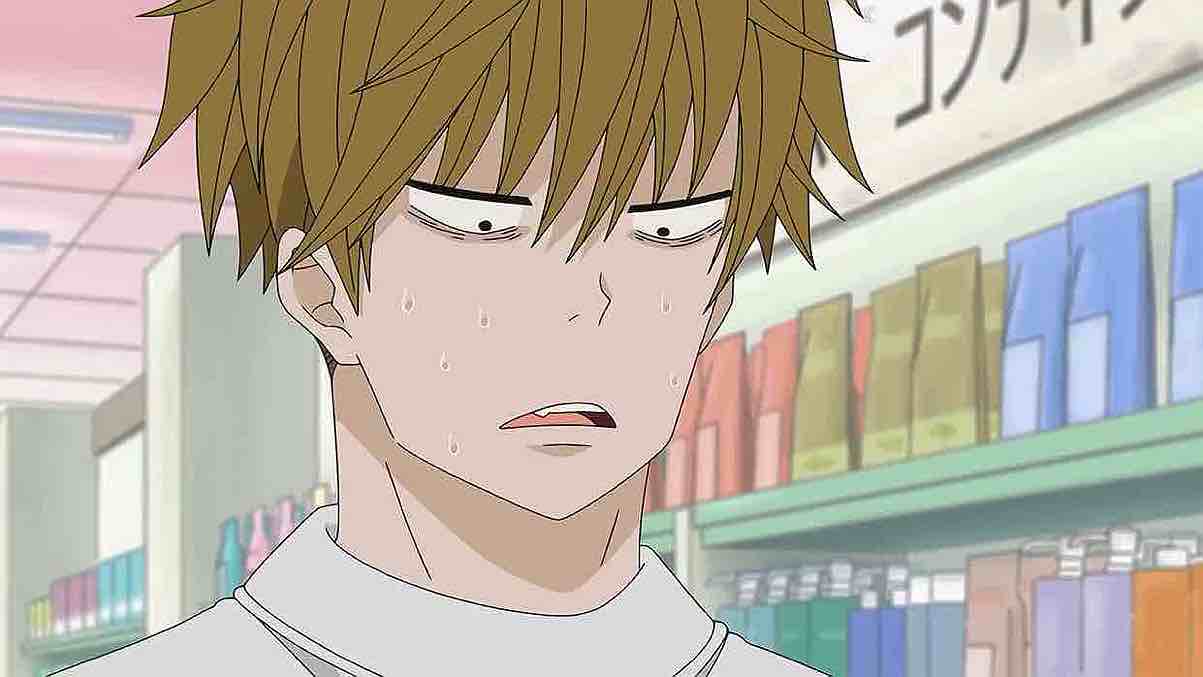 I’m pleased to see Kotarou getting such high aggregator scores – for all my skepticism of those, they do reflect a sliver of public opinion if nothing else. I’m still convinced very few people are actually watching it (in English anyway), but at least the ones who are appreciate it. A slice of life this series is (and a real one, unlike the 80% or so of series that get that term slapped on them these days). But it’s dense – events may be mundane individually but they add up to a powerful narrative. And the show does a remarkable job balancing the humor and the tragedy, to the point where it can be hard to tell where one stops on the other begins.
I’m pleased to see Kotarou getting such high aggregator scores – for all my skepticism of those, they do reflect a sliver of public opinion if nothing else. I’m still convinced very few people are actually watching it (in English anyway), but at least the ones who are appreciate it. A slice of life this series is (and a real one, unlike the 80% or so of series that get that term slapped on them these days). But it’s dense – events may be mundane individually but they add up to a powerful narrative. And the show does a remarkable job balancing the humor and the tragedy, to the point where it can be hard to tell where one stops on the other begins.
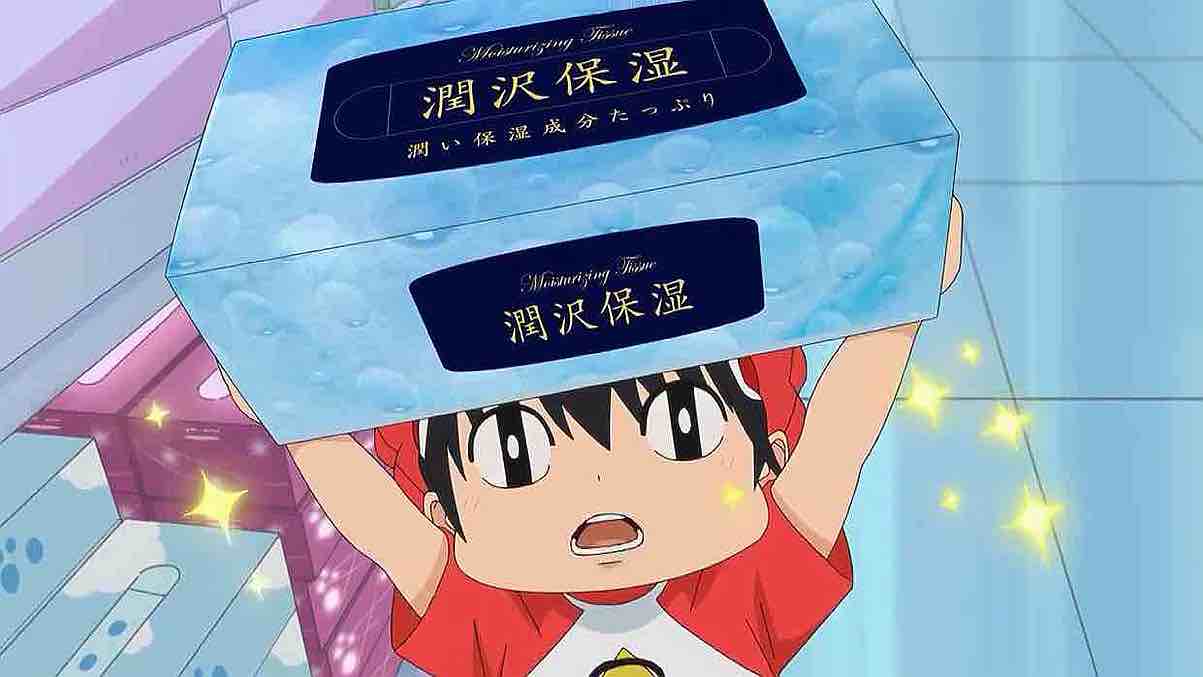 First off, I have no idea if eating tissues is a thing. But I’m someone who has experience of having little or no food for days at a time as a child, so this hit pretty hard for me. It starts off innocently enough, as these chapters do, with wry observations of weird little Kotarou being so particular about tissues. But we put the pieces together at the same time Karino-san does. “Sweet”, indeed. This is a spiritual pair with the dinner episode, where Kotarou invites the neighbors over to sample his (remarkable) cooking. Having seen the lavish kaiseki he prepares for himself they’re surprised when he offered them only one dish (and rice). They never do understand why Kotarou felt no need to prepare many dishes that evening – but we do.
First off, I have no idea if eating tissues is a thing. But I’m someone who has experience of having little or no food for days at a time as a child, so this hit pretty hard for me. It starts off innocently enough, as these chapters do, with wry observations of weird little Kotarou being so particular about tissues. But we put the pieces together at the same time Karino-san does. “Sweet”, indeed. This is a spiritual pair with the dinner episode, where Kotarou invites the neighbors over to sample his (remarkable) cooking. Having seen the lavish kaiseki he prepares for himself they’re surprised when he offered them only one dish (and rice). They never do understand why Kotarou felt no need to prepare many dishes that evening – but we do.
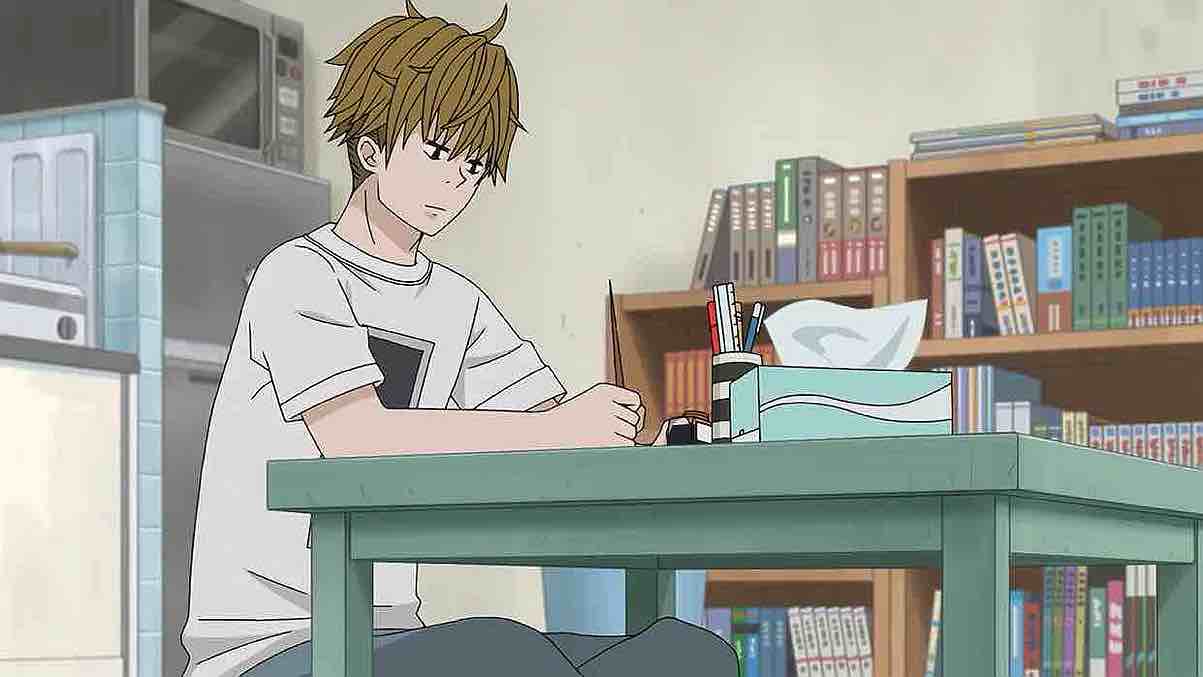 What makes these little observations hit so hard it the resigned manner in which Kotarou deals with his situation. This is normal for for him – the only normal he knows. Kids will do this of course, adapt to whatever bizarre situation they find themselves in and adapt to it as if it were normal (and the younger they are the more that happens). But somehow that just makes it worse when you know the true score as we do. This certainly applies to the episode with the kindergarten teacher. Once more this hits close to home for me, as someone who’s taught kids this age – you have to be “on” all the time. But Kotarou is not only good at faking smiles himself, he’s been forced to learn how to spot it in others.
What makes these little observations hit so hard it the resigned manner in which Kotarou deals with his situation. This is normal for for him – the only normal he knows. Kids will do this of course, adapt to whatever bizarre situation they find themselves in and adapt to it as if it were normal (and the younger they are the more that happens). But somehow that just makes it worse when you know the true score as we do. This certainly applies to the episode with the kindergarten teacher. Once more this hits close to home for me, as someone who’s taught kids this age – you have to be “on” all the time. But Kotarou is not only good at faking smiles himself, he’s been forced to learn how to spot it in others.
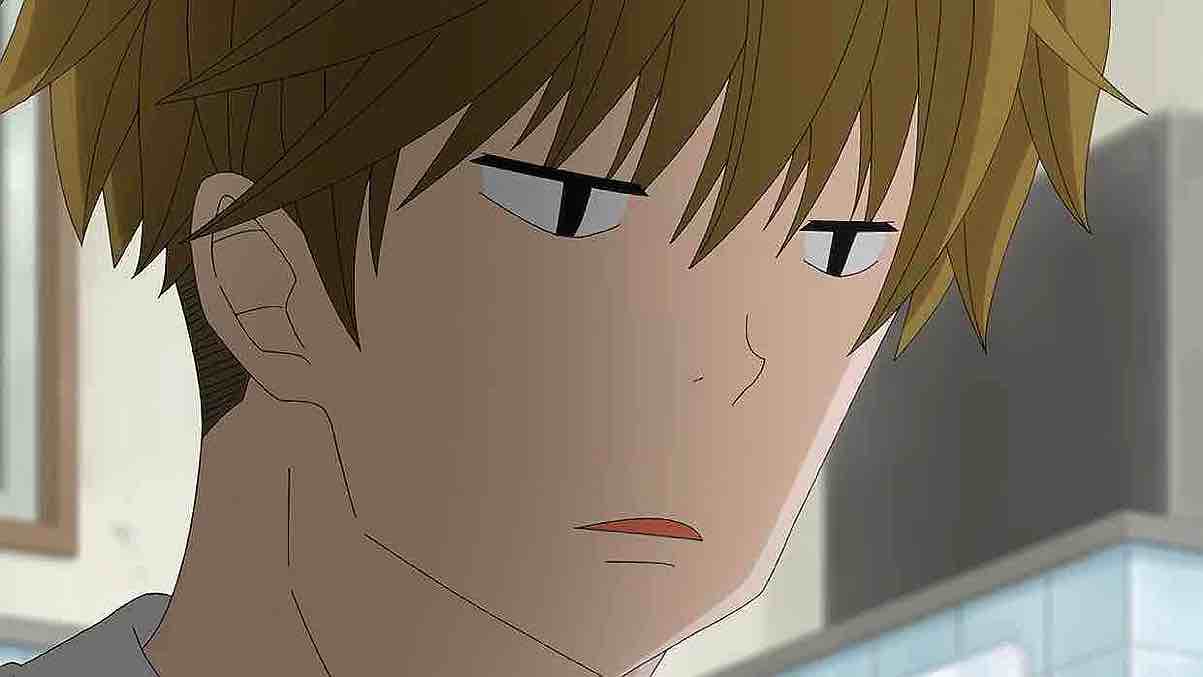 Next up we meet a new character, Ryouta (Ishikawa Kaitou). This chapter sheds a little light on Kotarou’s past – it apparently includes some time in a foster home or orphanage. Ryouta was an older resident, now an 18 year-old day laborer – a friend Kotarou had to part with when his father found out where he was (thus the photo phobia). But he remembers the promise they’d made to watch the Perseid meteor shower together from atop a local hill – they both remember in fact. Kotarou returns the digital camera he took with him despite it belonging to Ryouta, and Ryouta gives him the part of it he really wanted – the memory card (aptly named).
Next up we meet a new character, Ryouta (Ishikawa Kaitou). This chapter sheds a little light on Kotarou’s past – it apparently includes some time in a foster home or orphanage. Ryouta was an older resident, now an 18 year-old day laborer – a friend Kotarou had to part with when his father found out where he was (thus the photo phobia). But he remembers the promise they’d made to watch the Perseid meteor shower together from atop a local hill – they both remember in fact. Kotarou returns the digital camera he took with him despite it belonging to Ryouta, and Ryouta gives him the part of it he really wanted – the memory card (aptly named).
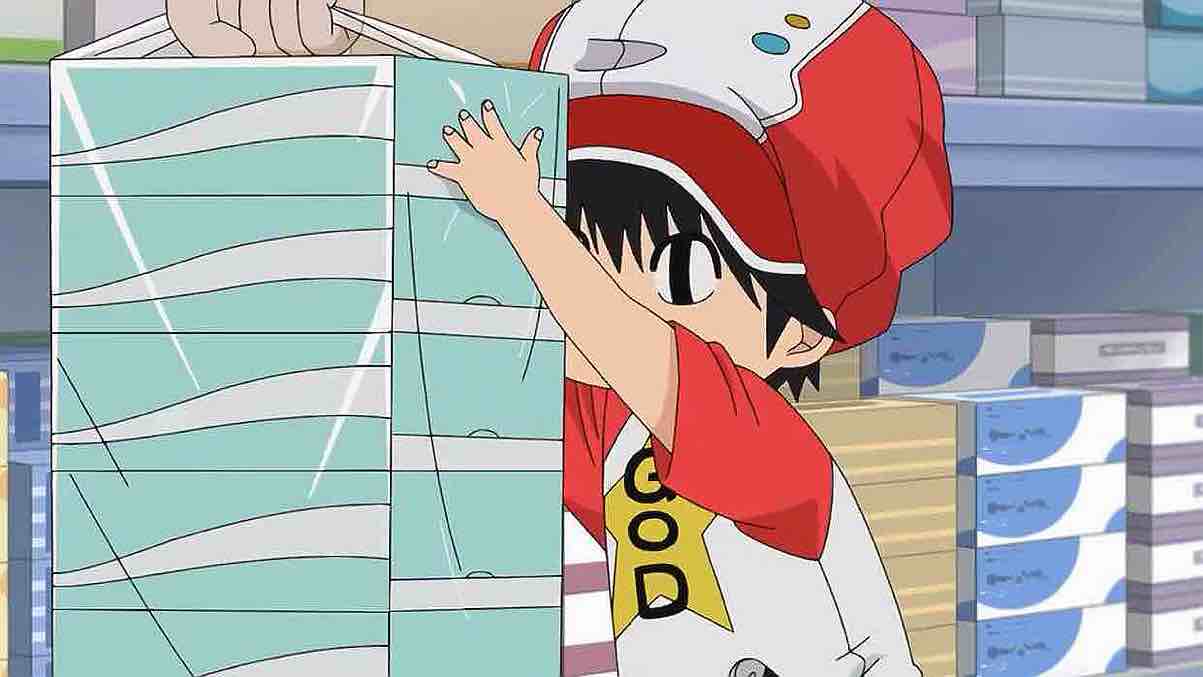 My favorite bit this week was the chapter with Fukuno (Sawashiro Chiharu). He’s fast becoming a favorite of mine, with his humorless laugh and tactless demeanor. Fukuno and Kotarou somehow seem like soulmates, and Kotarou (delivering Shin’s manuscript after the latter passes out with an anime cold) is stunned to discover that Fukuno has a wife and kids. Kotarou is horrified that Fukuno is working on a Sunday with kids at home, but Fukuno finds himself determined to try and make Kotarou act like a kid himself. This means a field trip to the editing department of the children’s magazine, a wonderland with life-size Tonosaman dolls and arcade consoles.
My favorite bit this week was the chapter with Fukuno (Sawashiro Chiharu). He’s fast becoming a favorite of mine, with his humorless laugh and tactless demeanor. Fukuno and Kotarou somehow seem like soulmates, and Kotarou (delivering Shin’s manuscript after the latter passes out with an anime cold) is stunned to discover that Fukuno has a wife and kids. Kotarou is horrified that Fukuno is working on a Sunday with kids at home, but Fukuno finds himself determined to try and make Kotarou act like a kid himself. This means a field trip to the editing department of the children’s magazine, a wonderland with life-size Tonosaman dolls and arcade consoles.
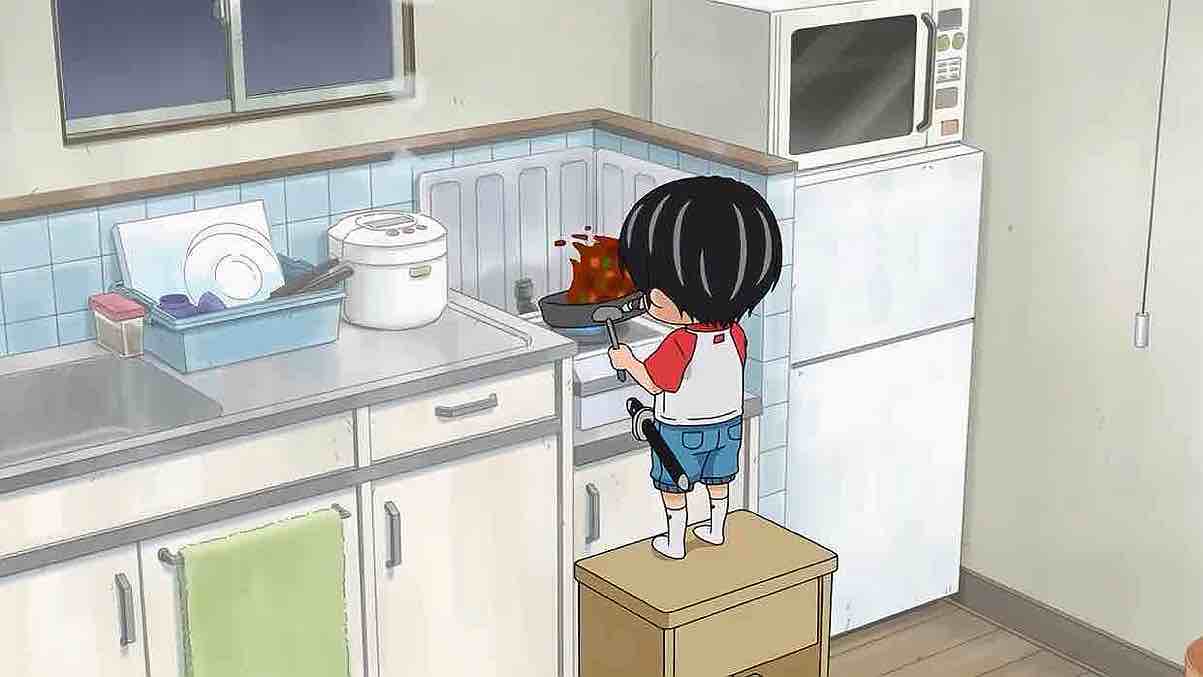 Finally, Kotarou’s misunderstanding with the sample lady at the supermarket – which reminds us that for all his mannerisms and stoicism, he is in fact a five (just) year-old. He sees the sample lady getting fat and assumes it’s because she has to eat all the unsold product. Kotarou rather gallantly starts buying it all up, but eventually she explains the truth to him. And once more the series seamlessly transitions from humor into pathos, as this new information serves to remind him just how not normal his own family situation has been.
Finally, Kotarou’s misunderstanding with the sample lady at the supermarket – which reminds us that for all his mannerisms and stoicism, he is in fact a five (just) year-old. He sees the sample lady getting fat and assumes it’s because she has to eat all the unsold product. Kotarou rather gallantly starts buying it all up, but eventually she explains the truth to him. And once more the series seamlessly transitions from humor into pathos, as this new information serves to remind him just how not normal his own family situation has been.


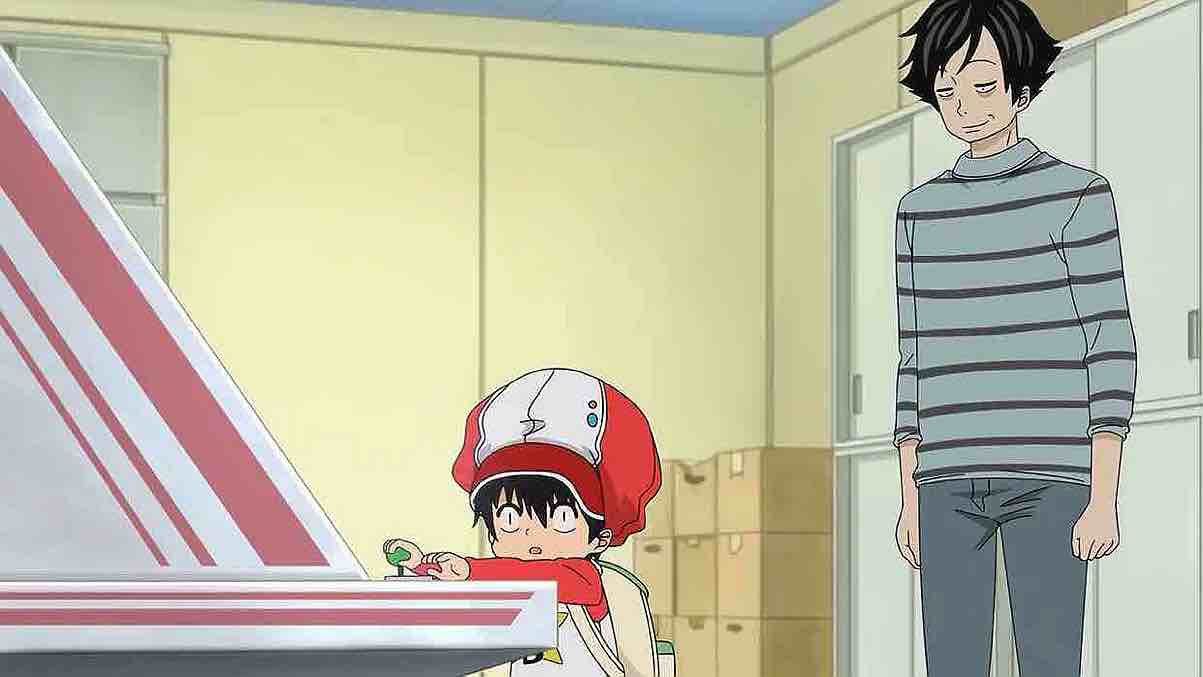
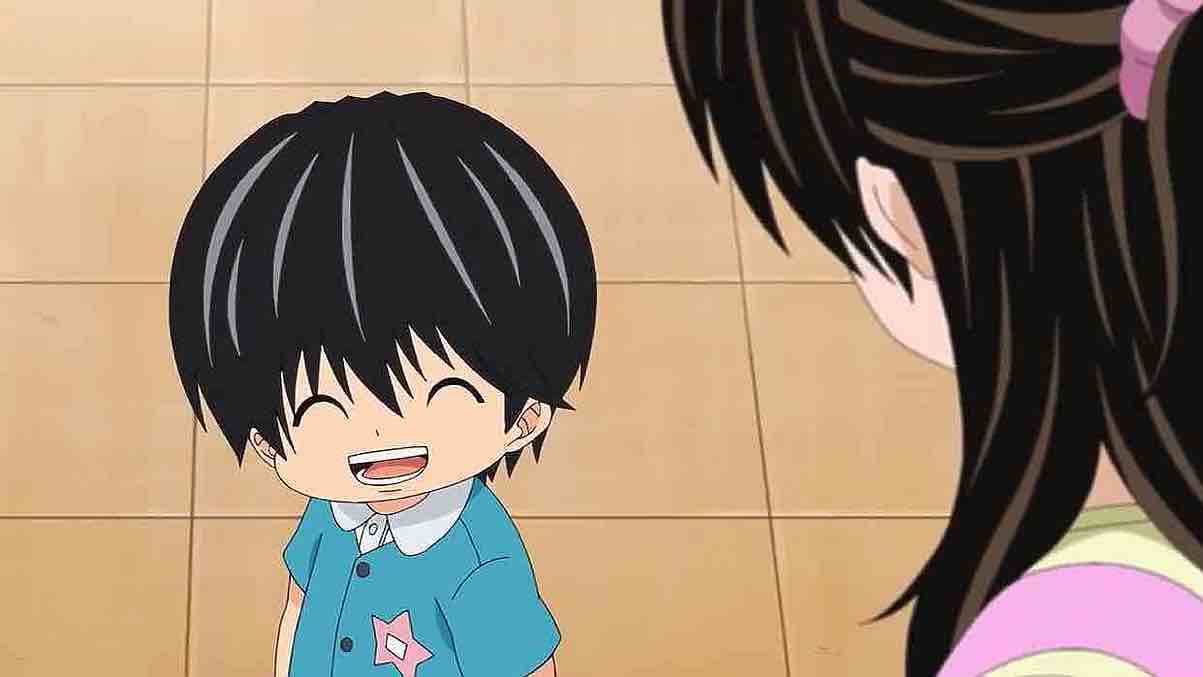
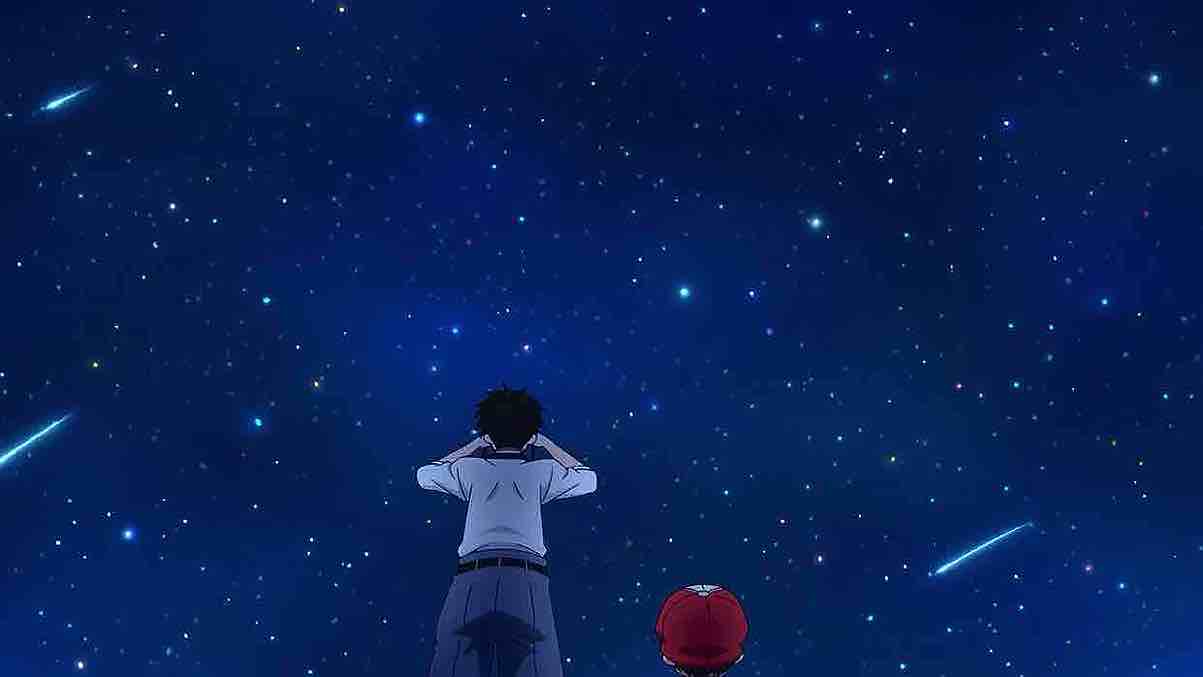
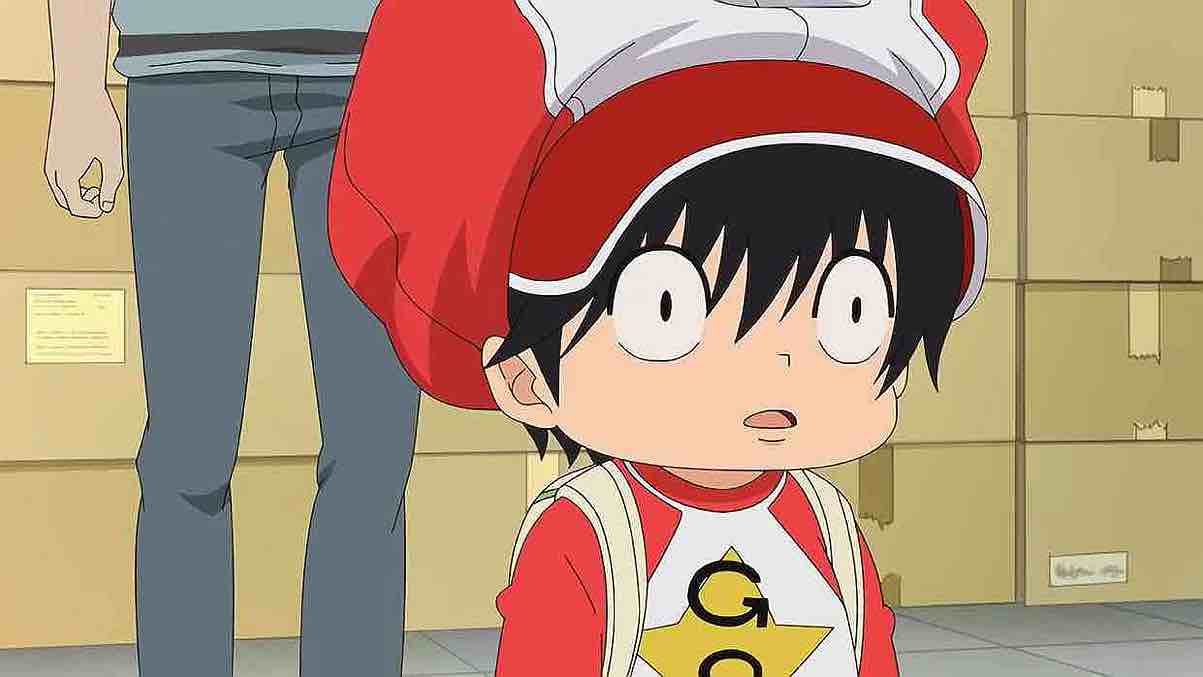
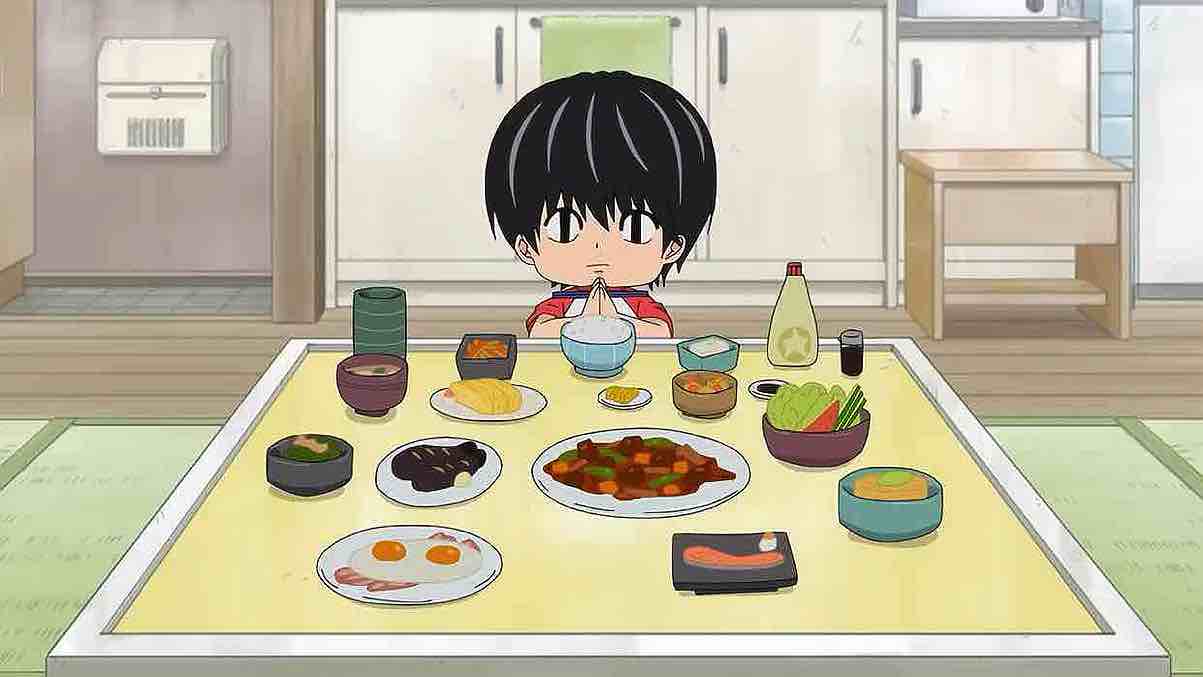
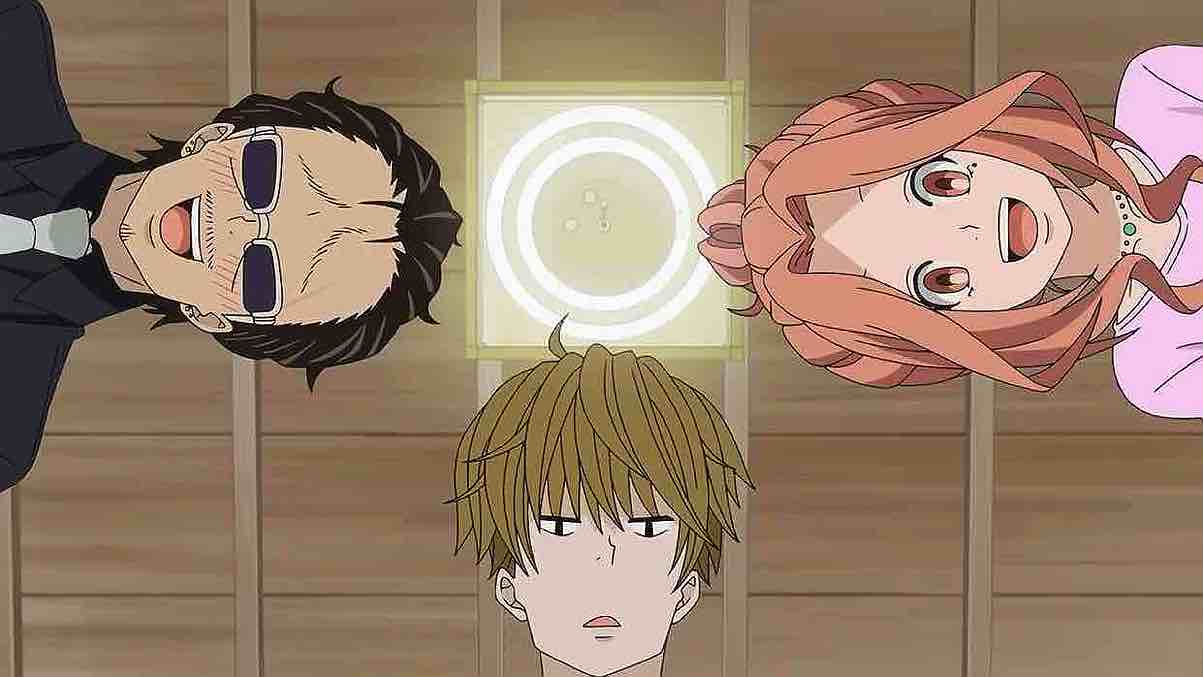
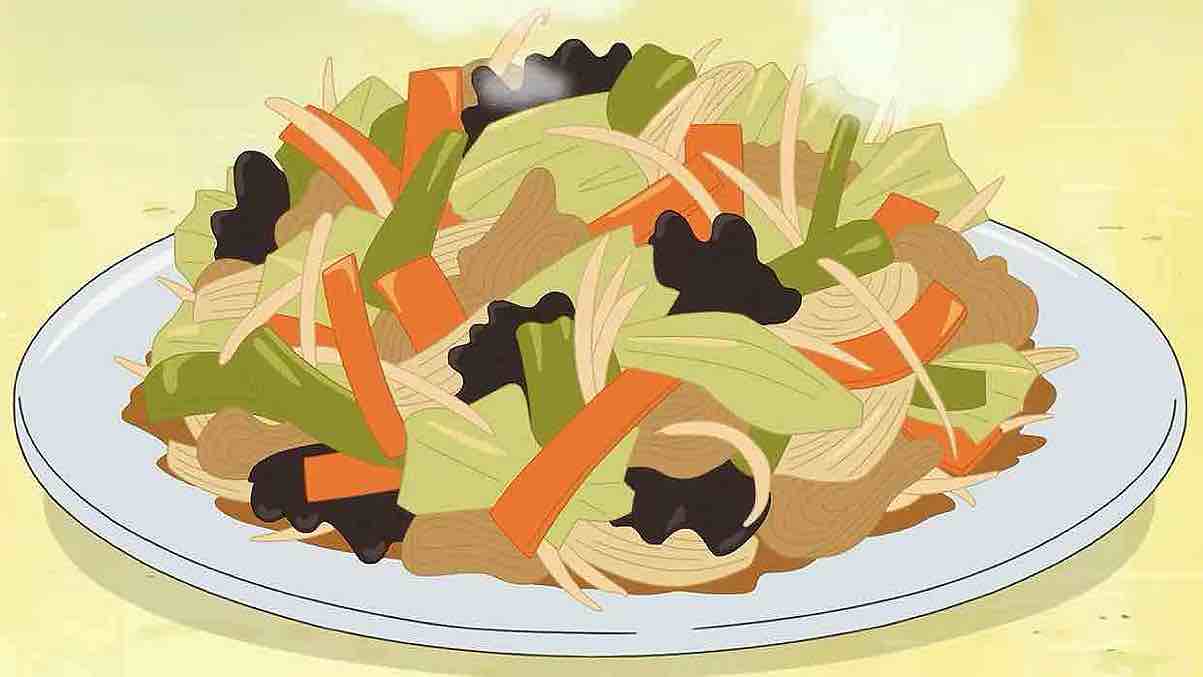
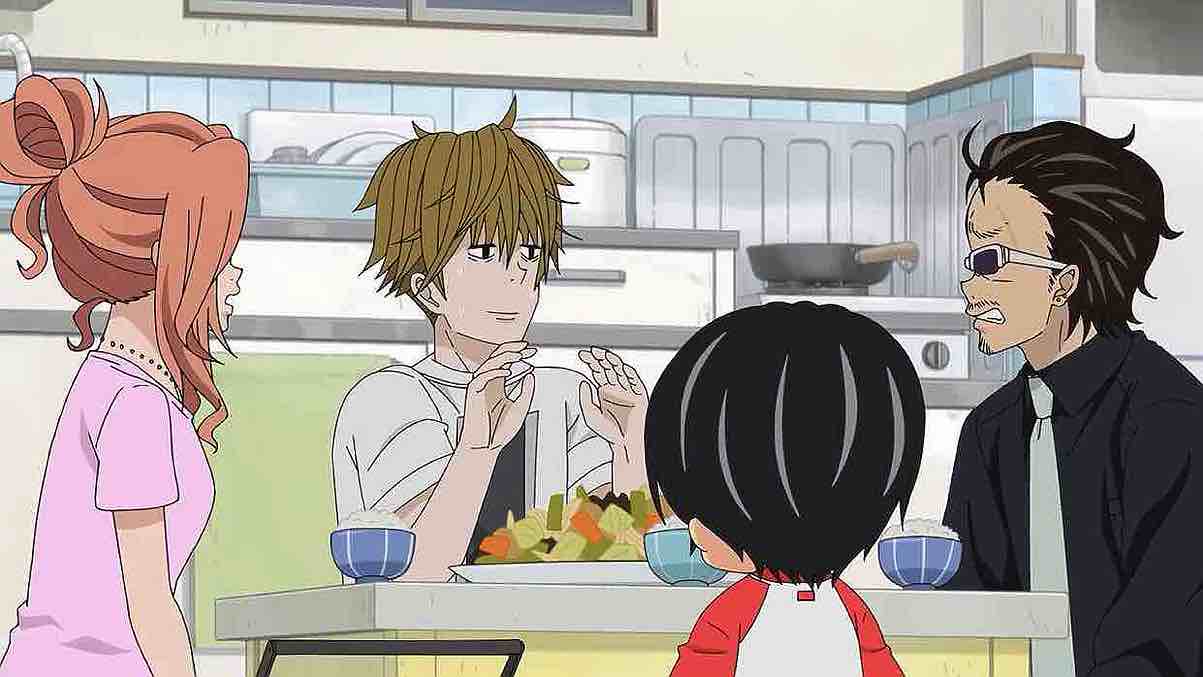
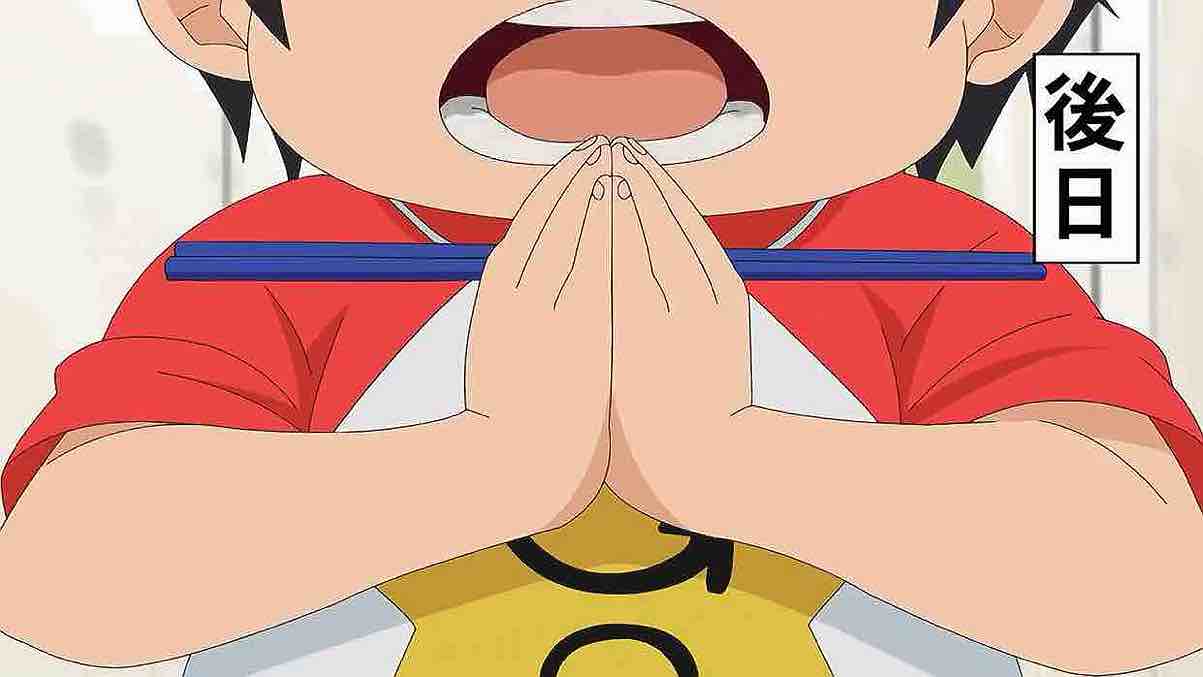
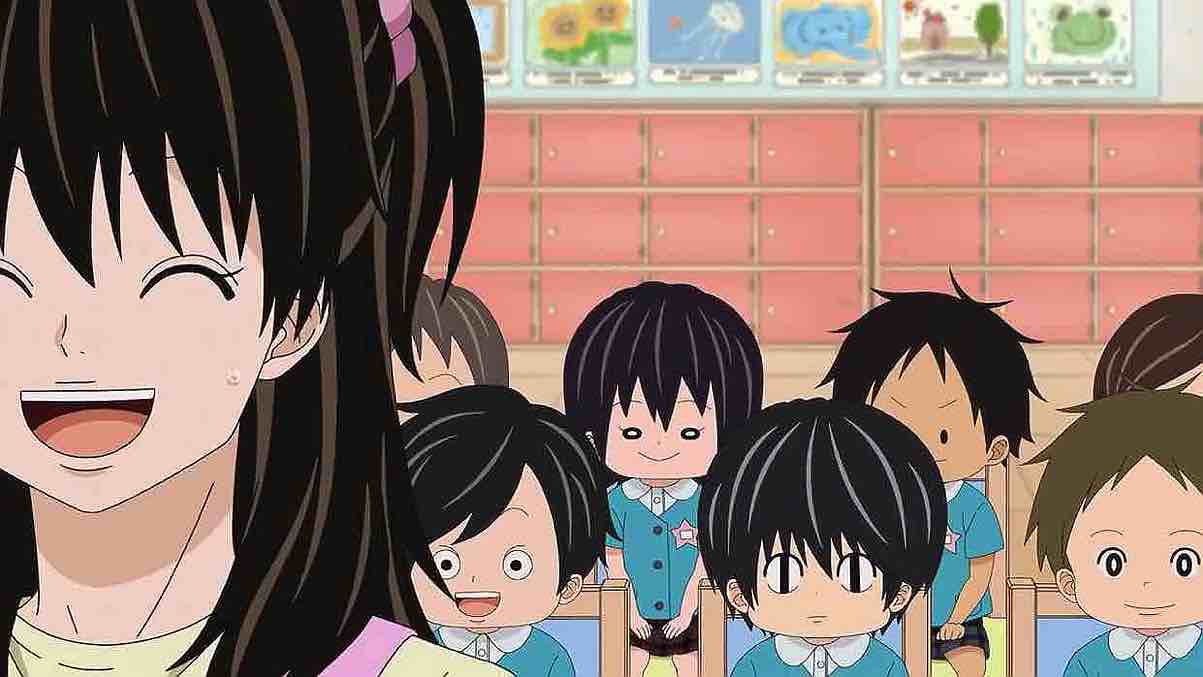
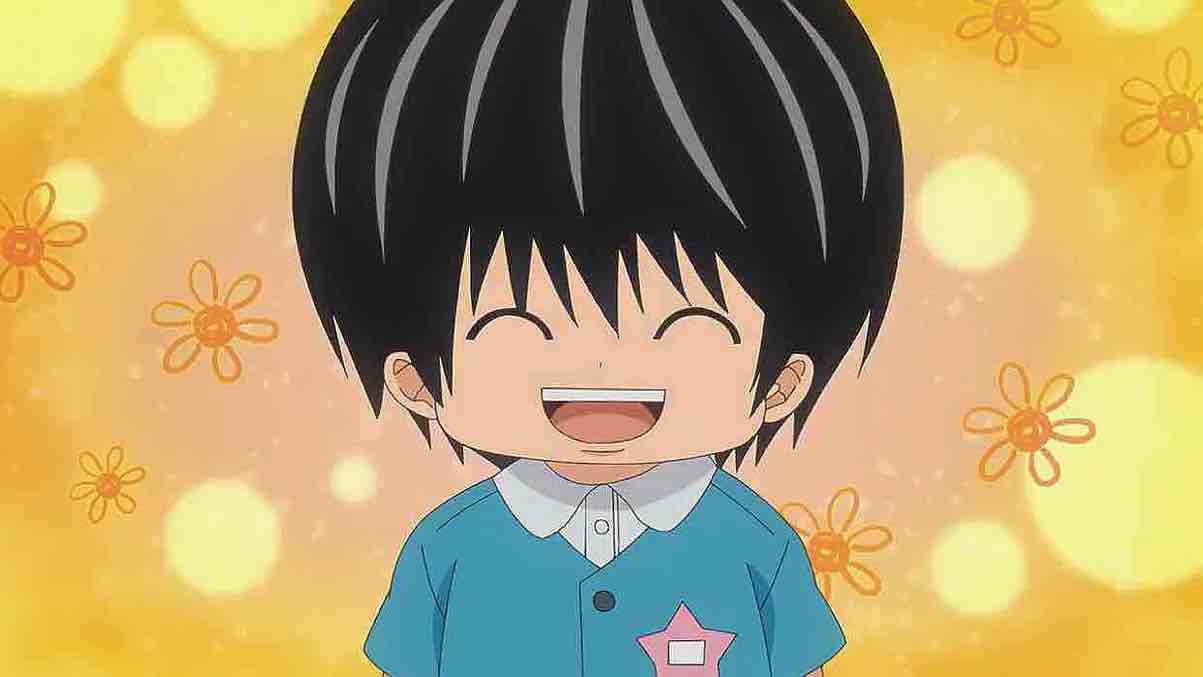
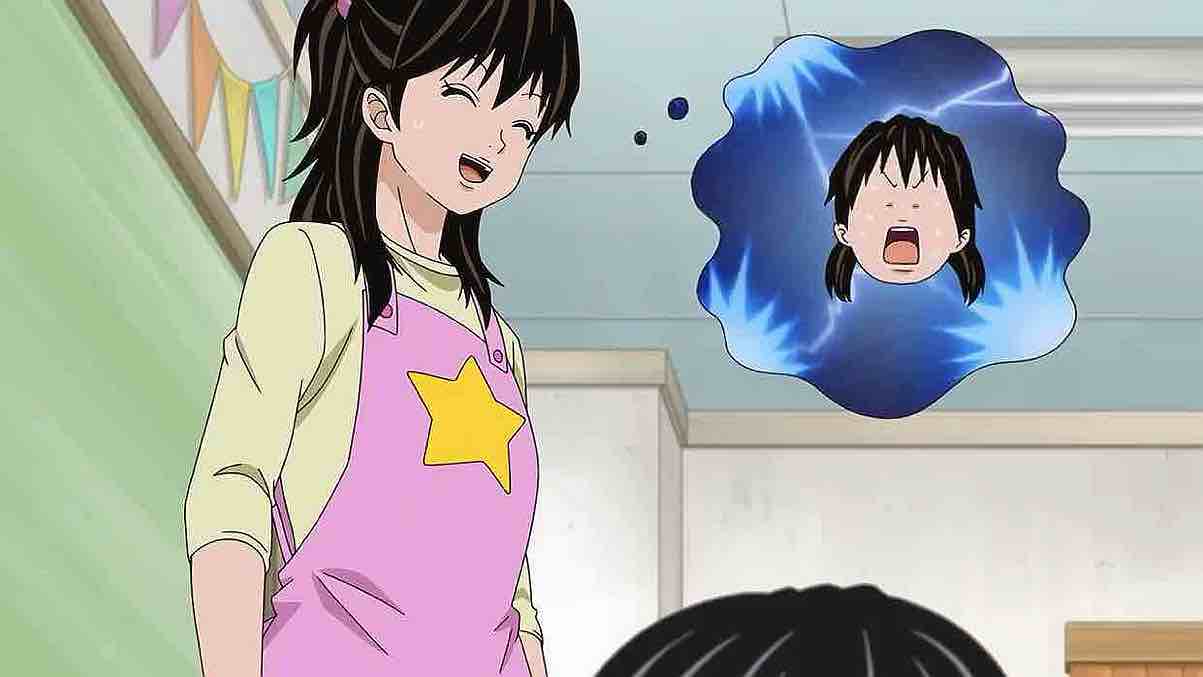
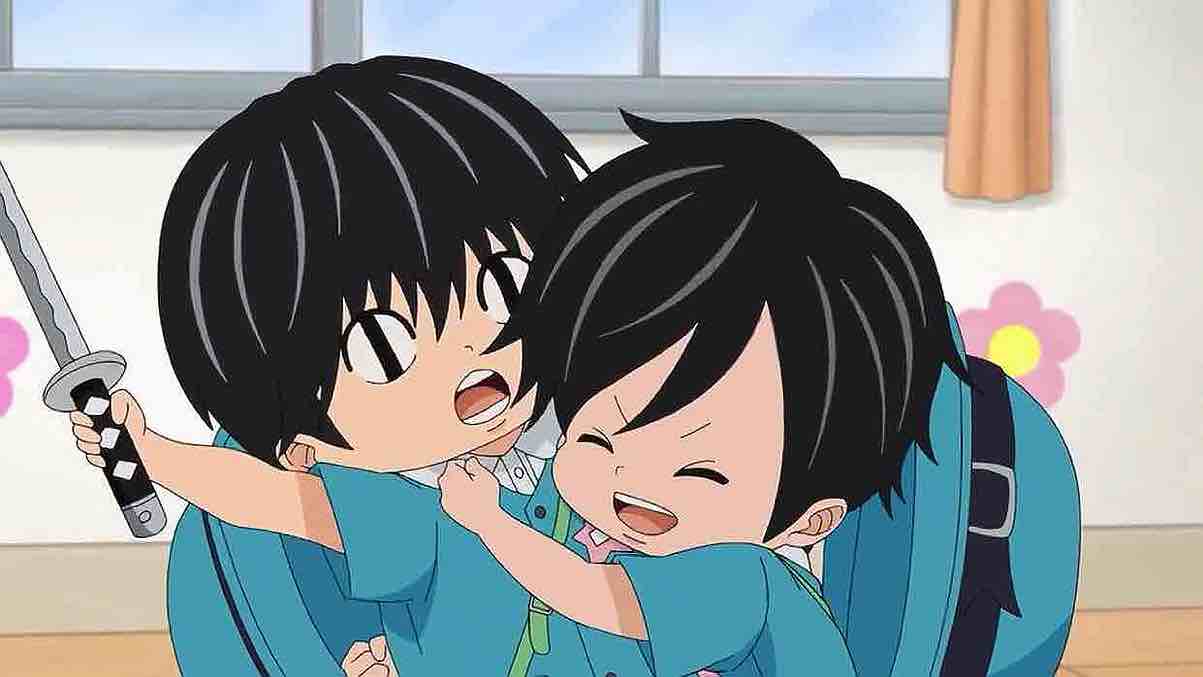
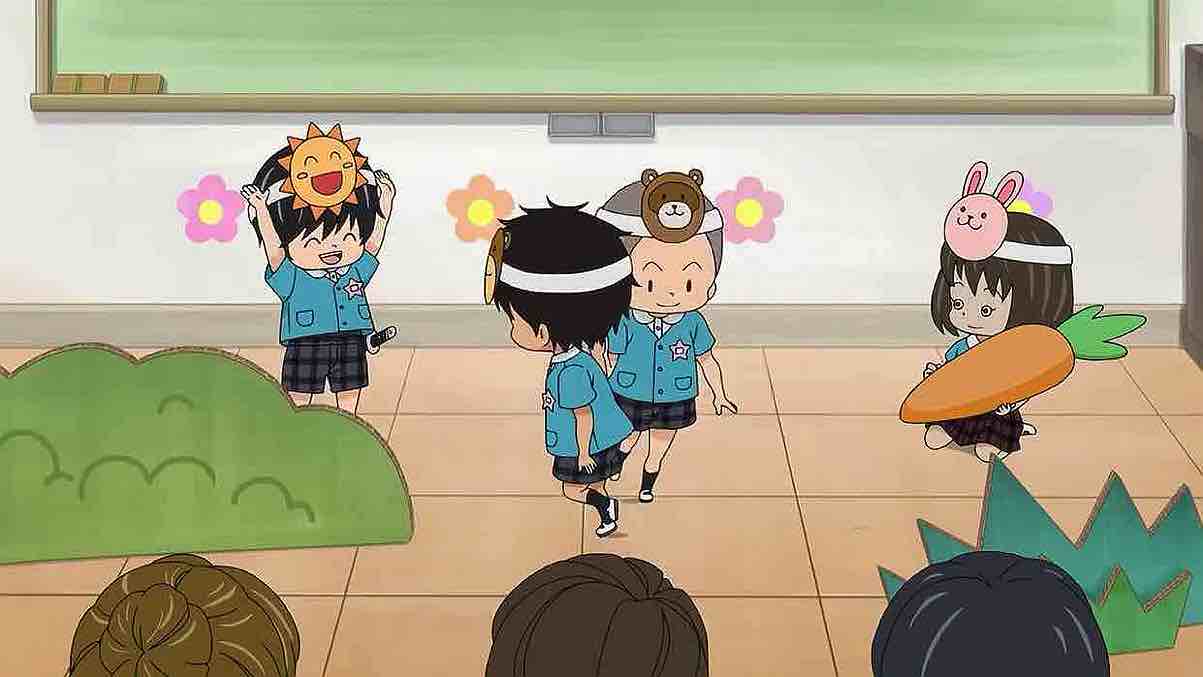
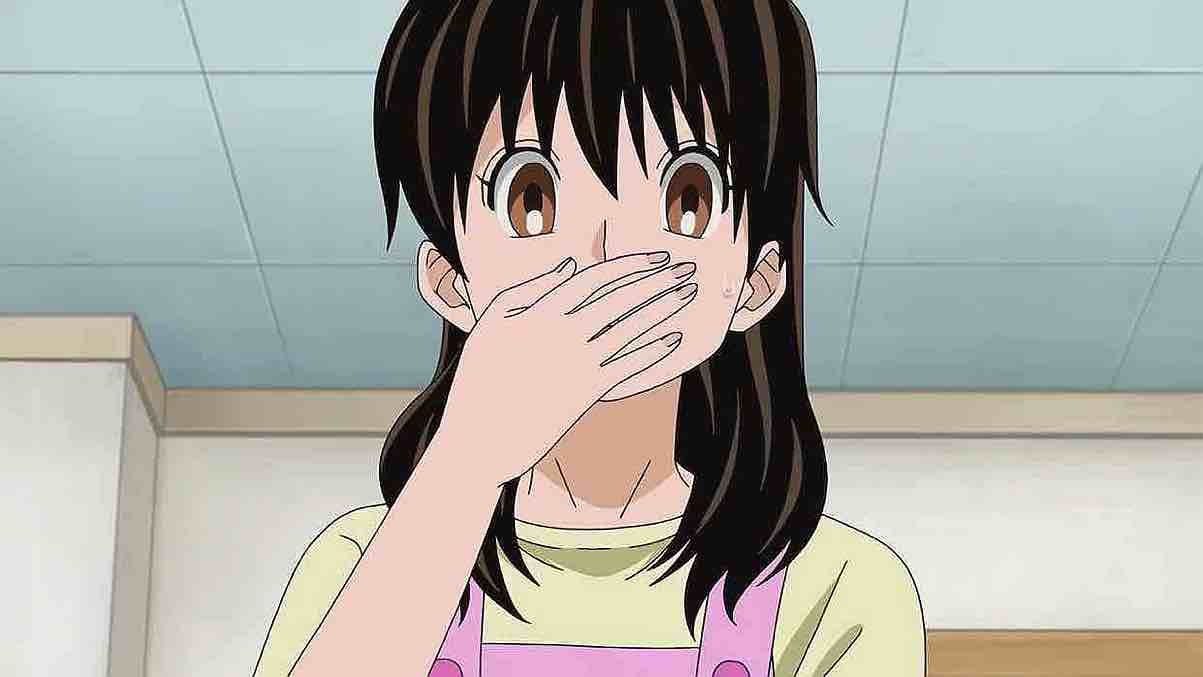
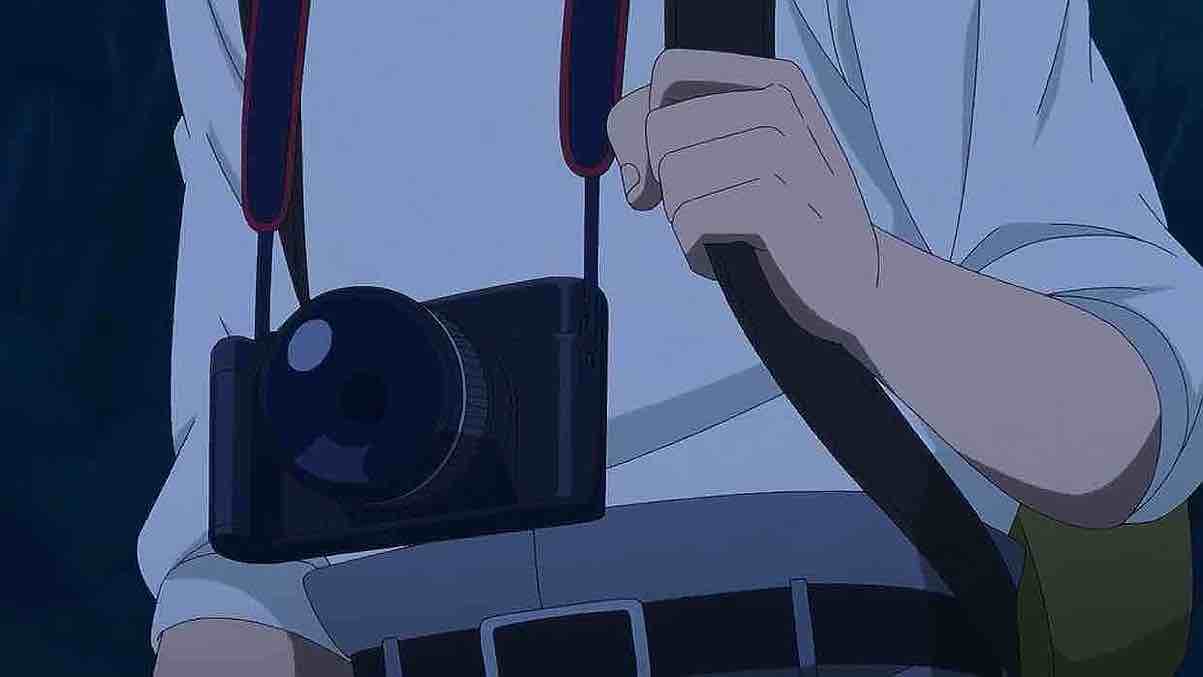
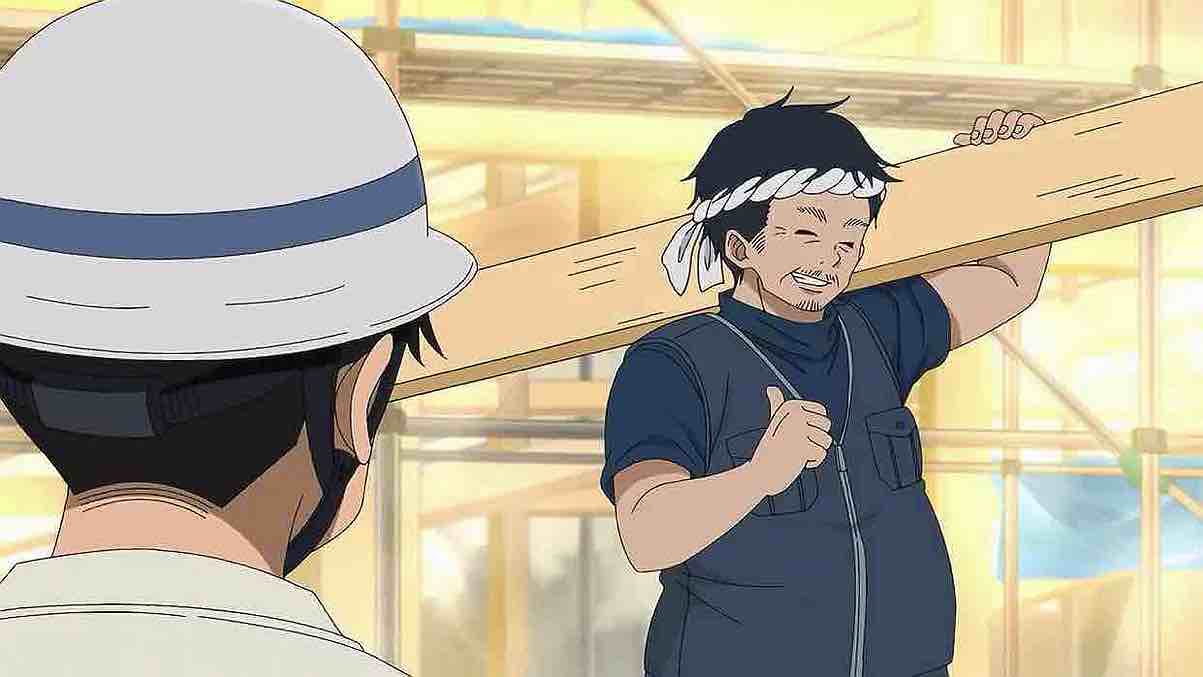
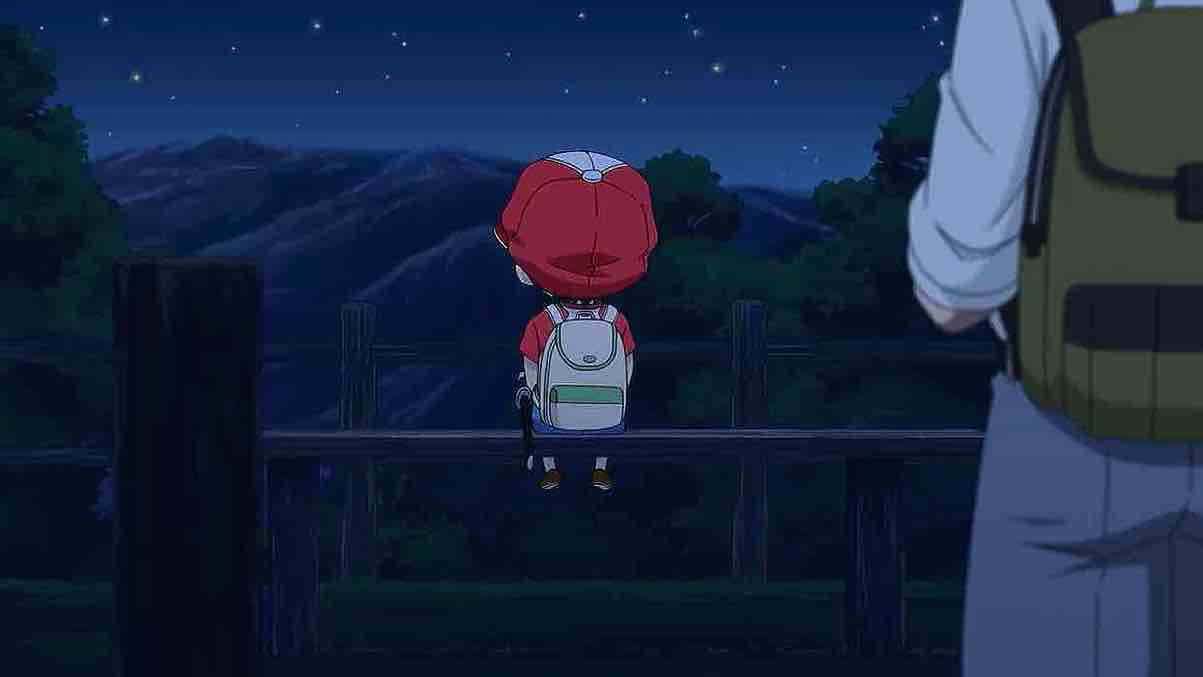
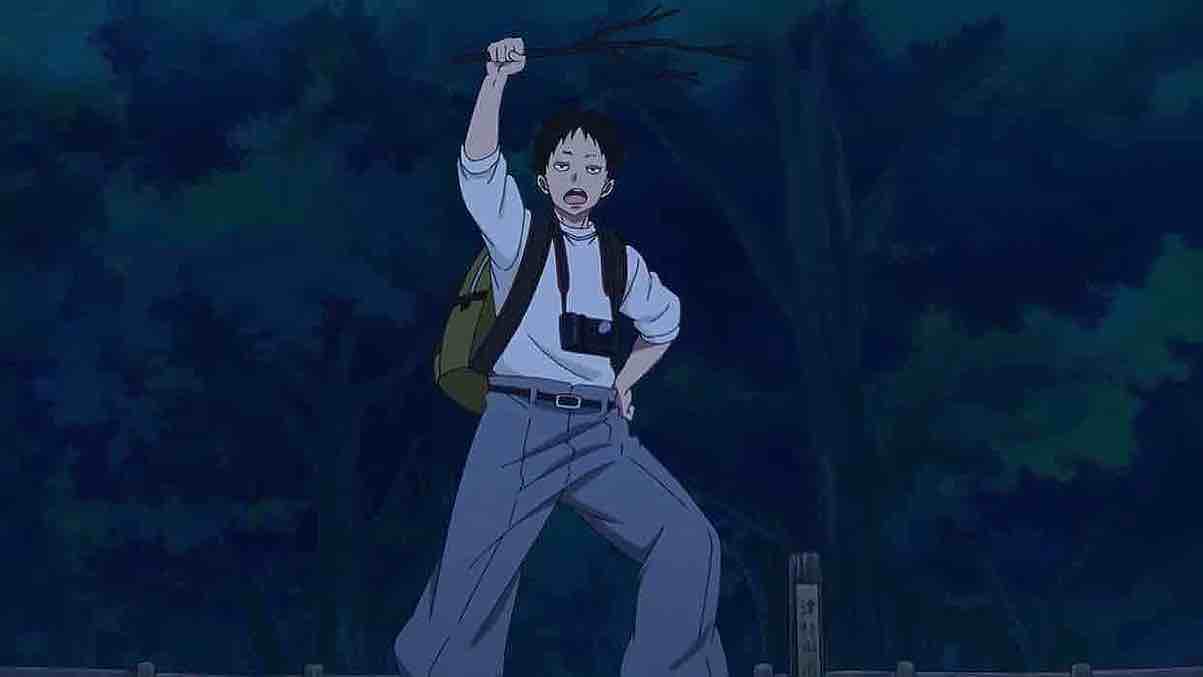
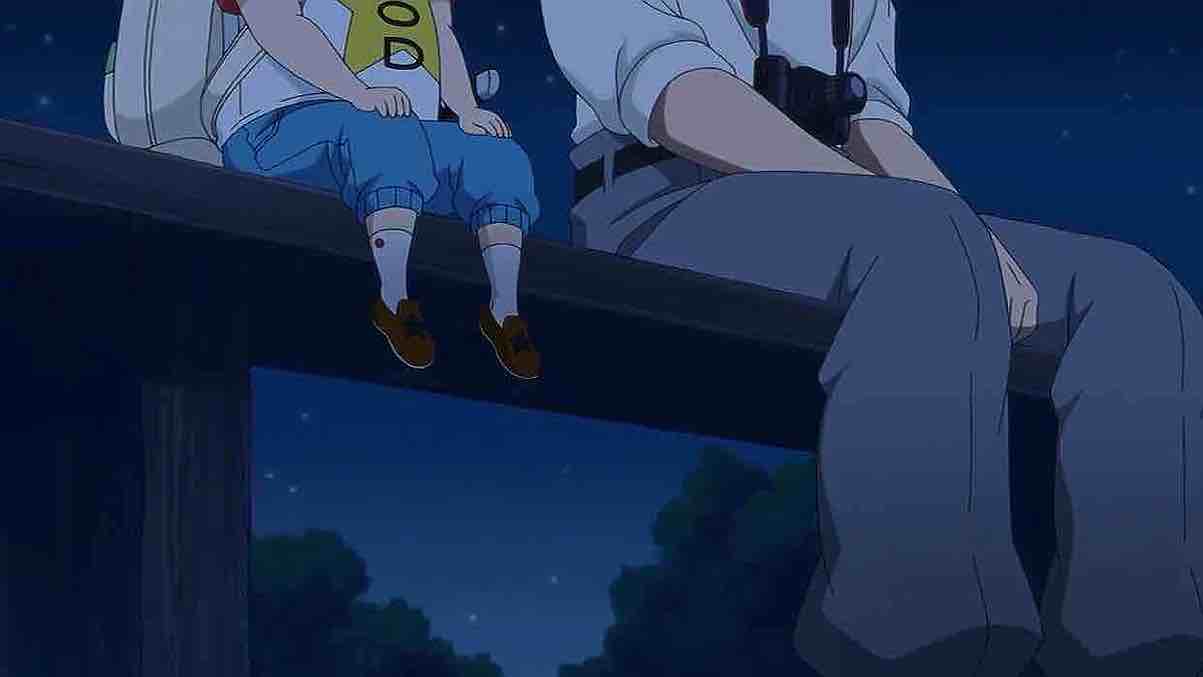
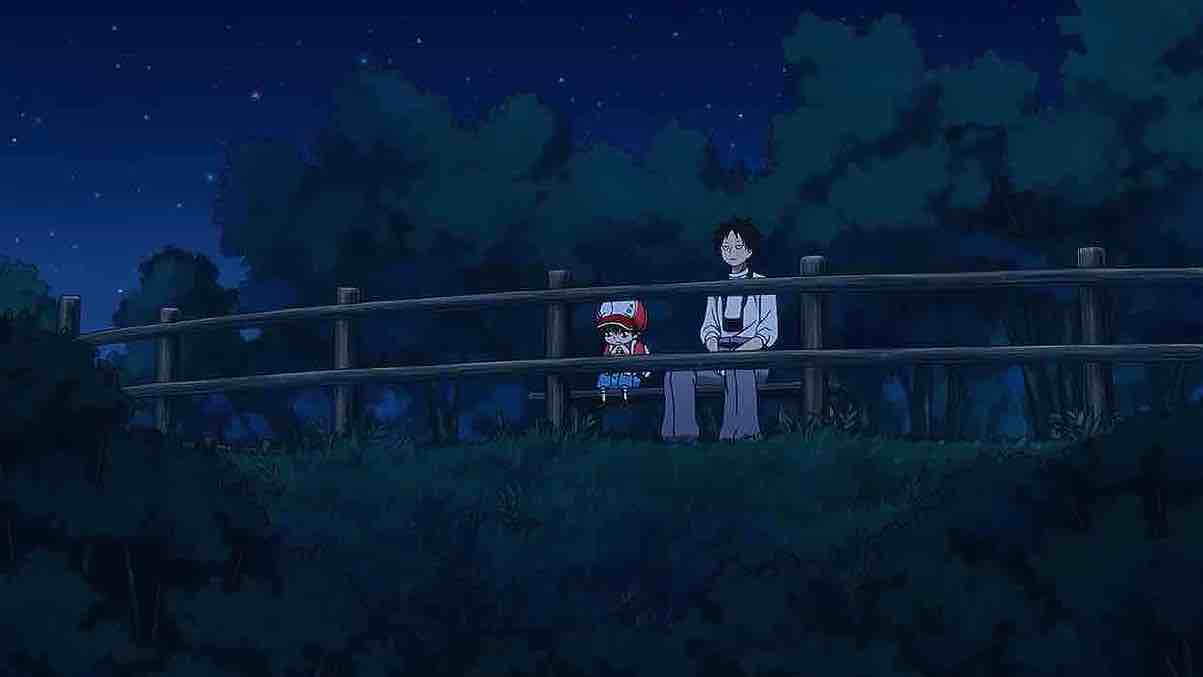
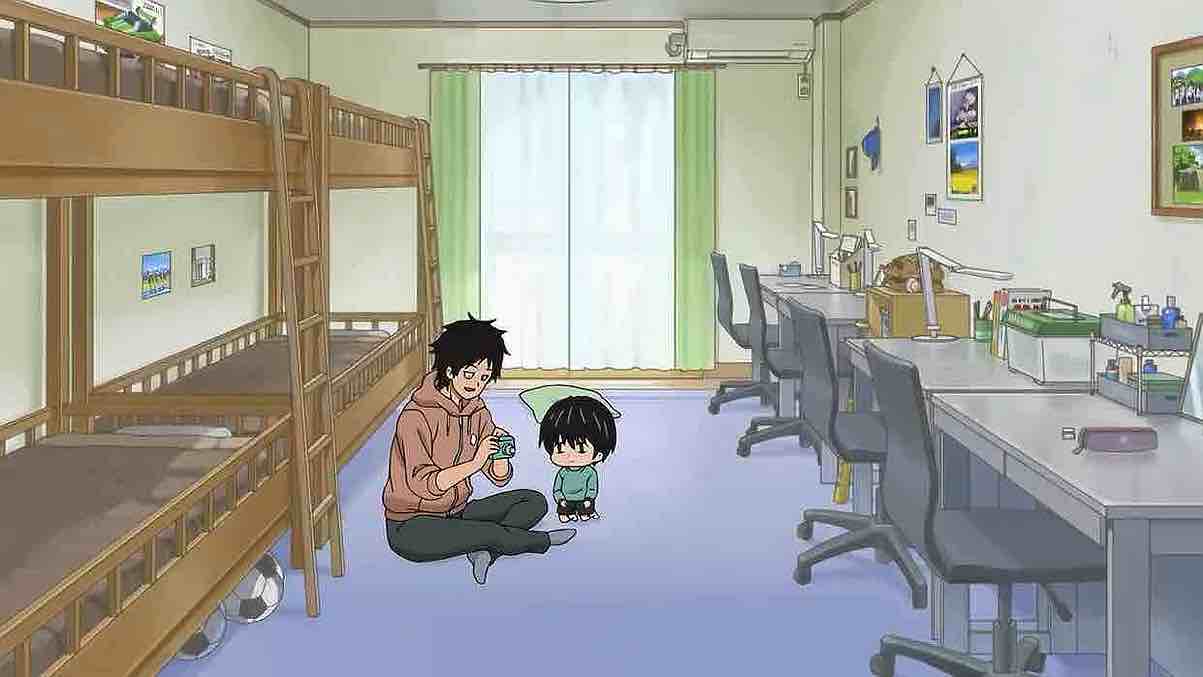

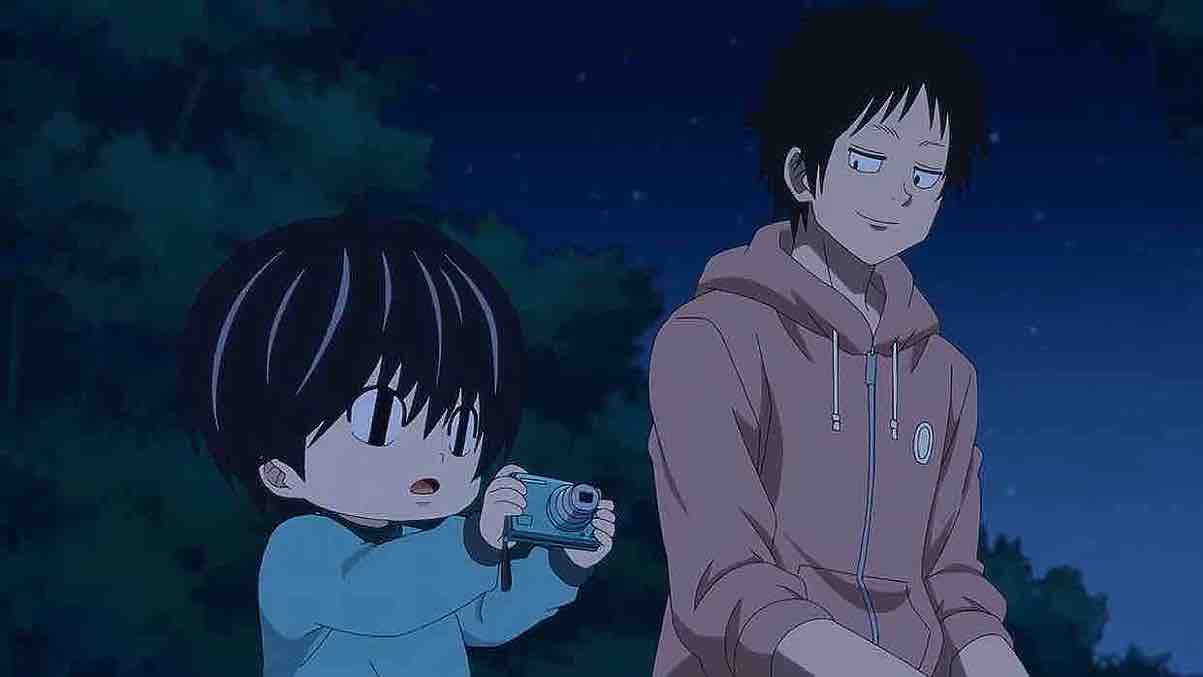
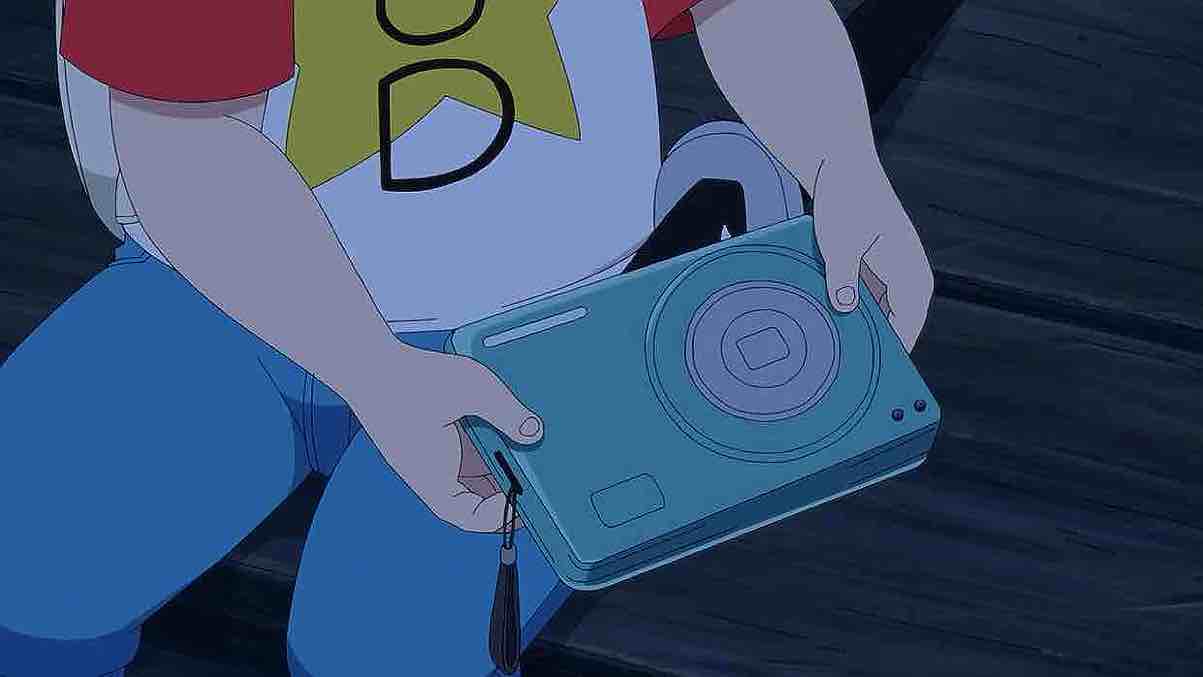
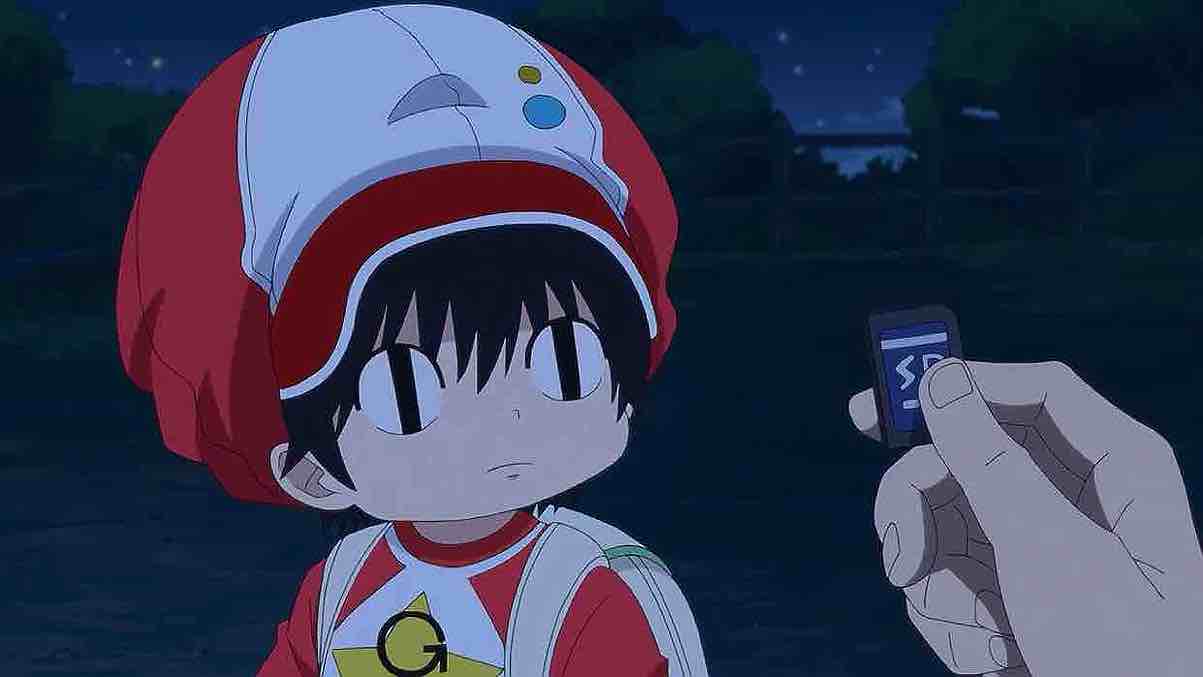
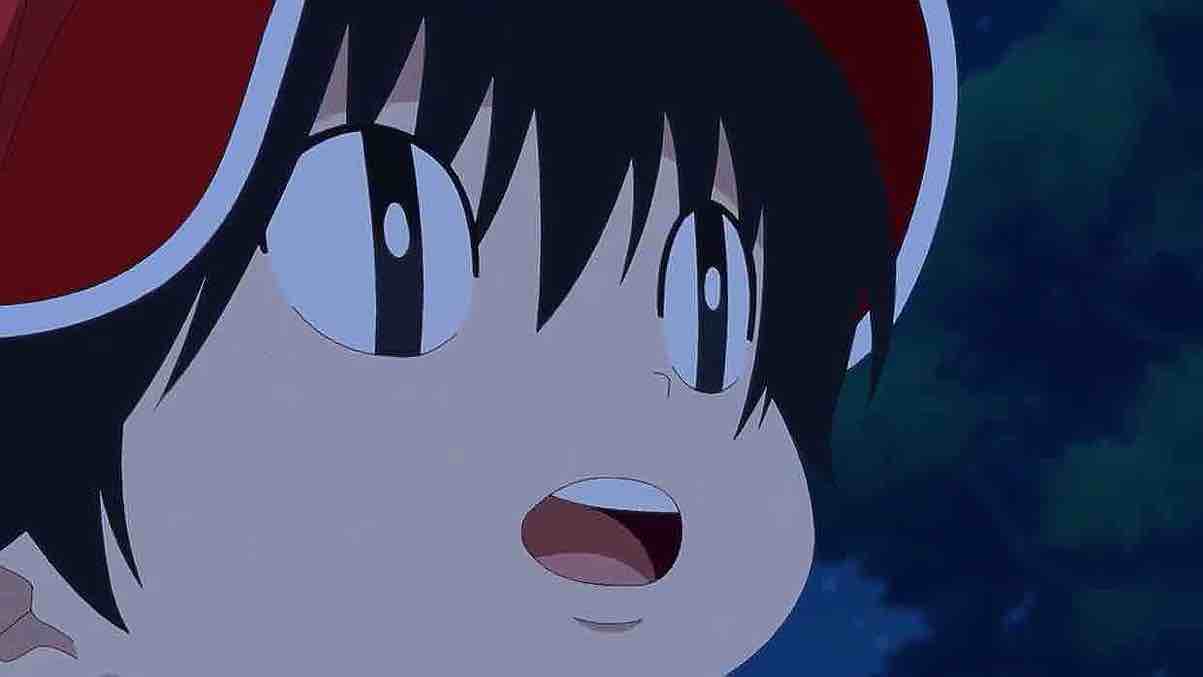
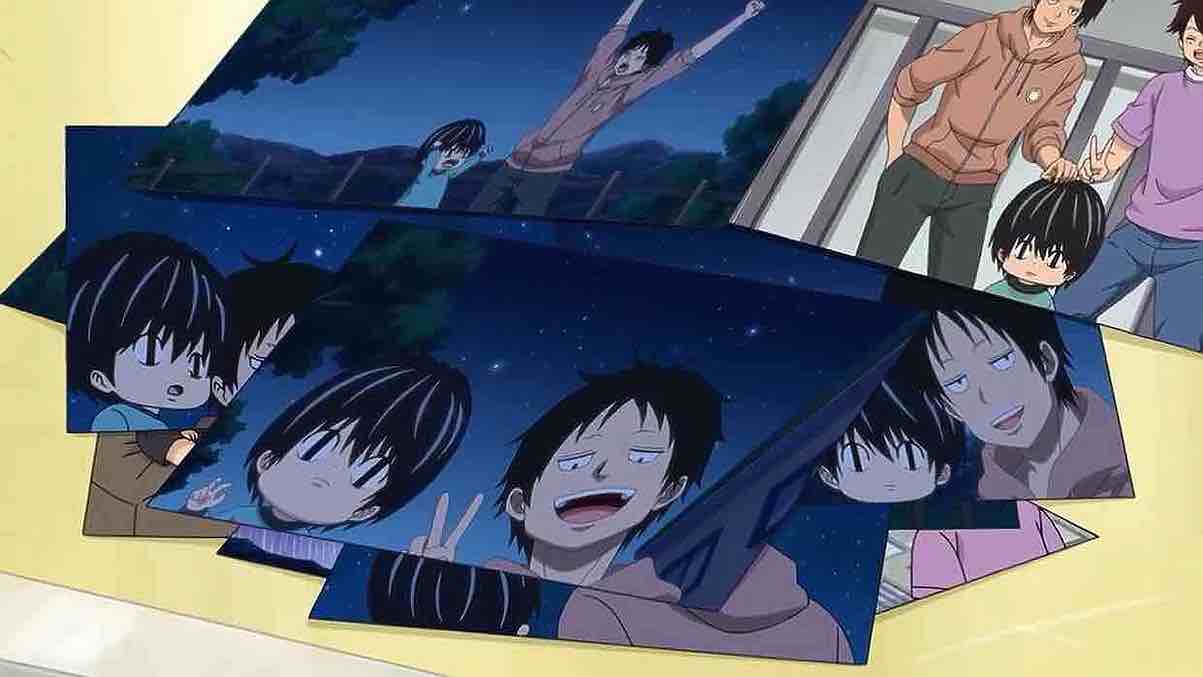
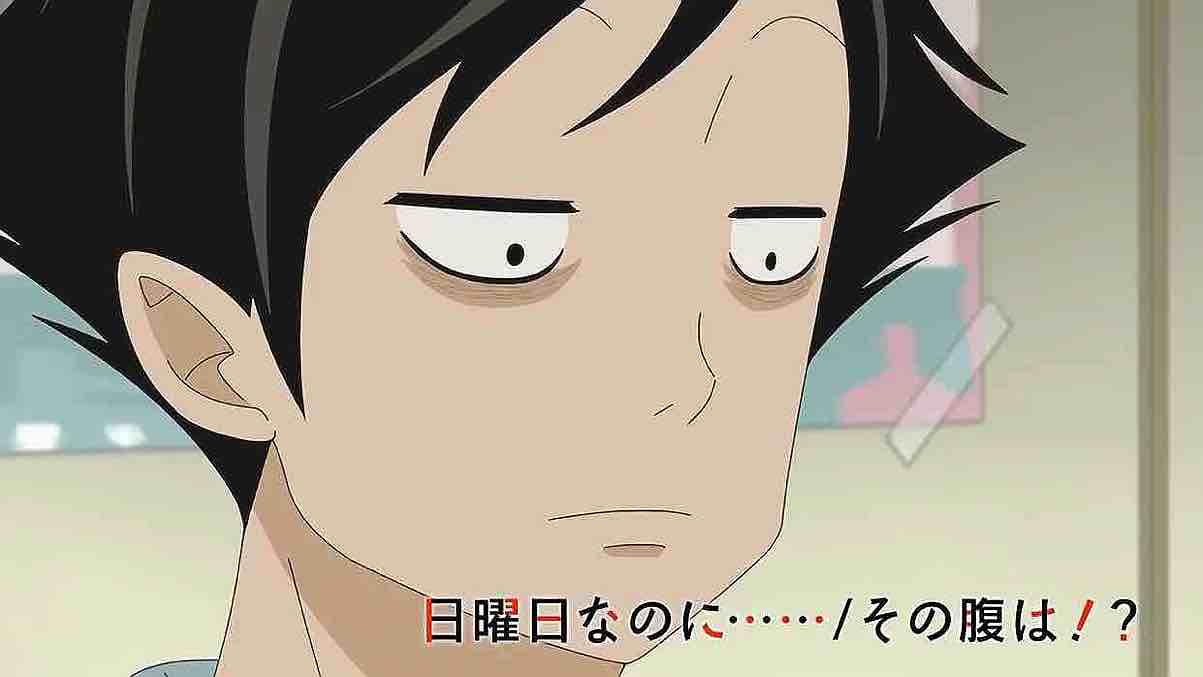
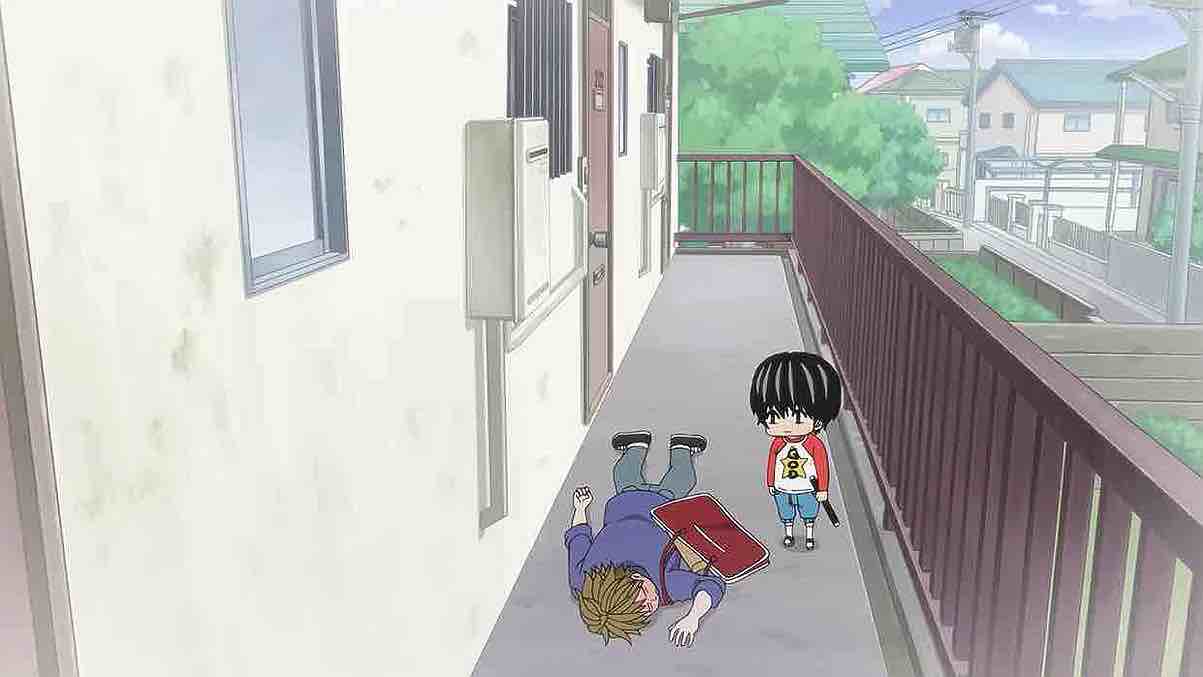
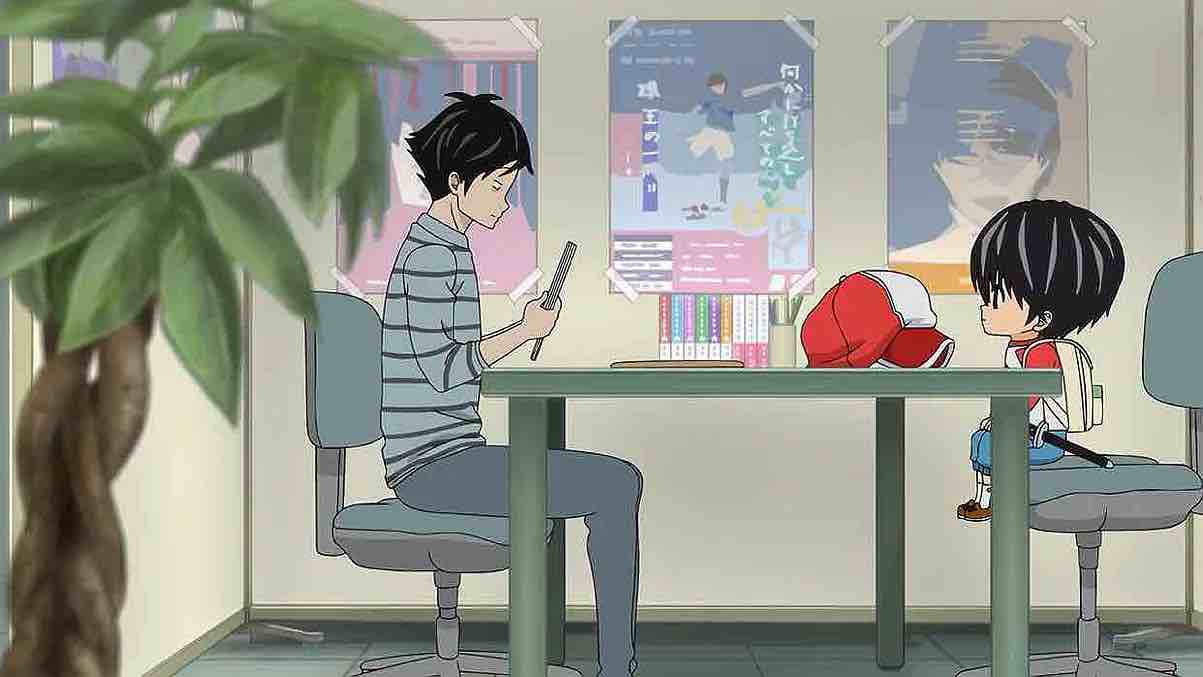
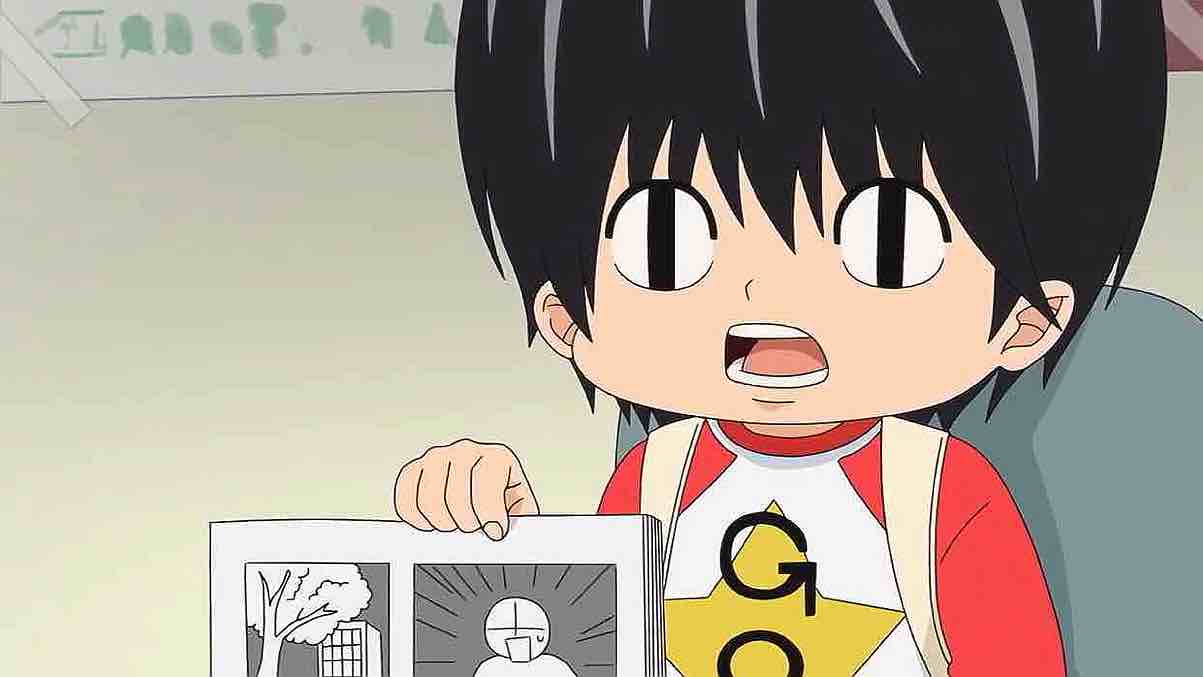
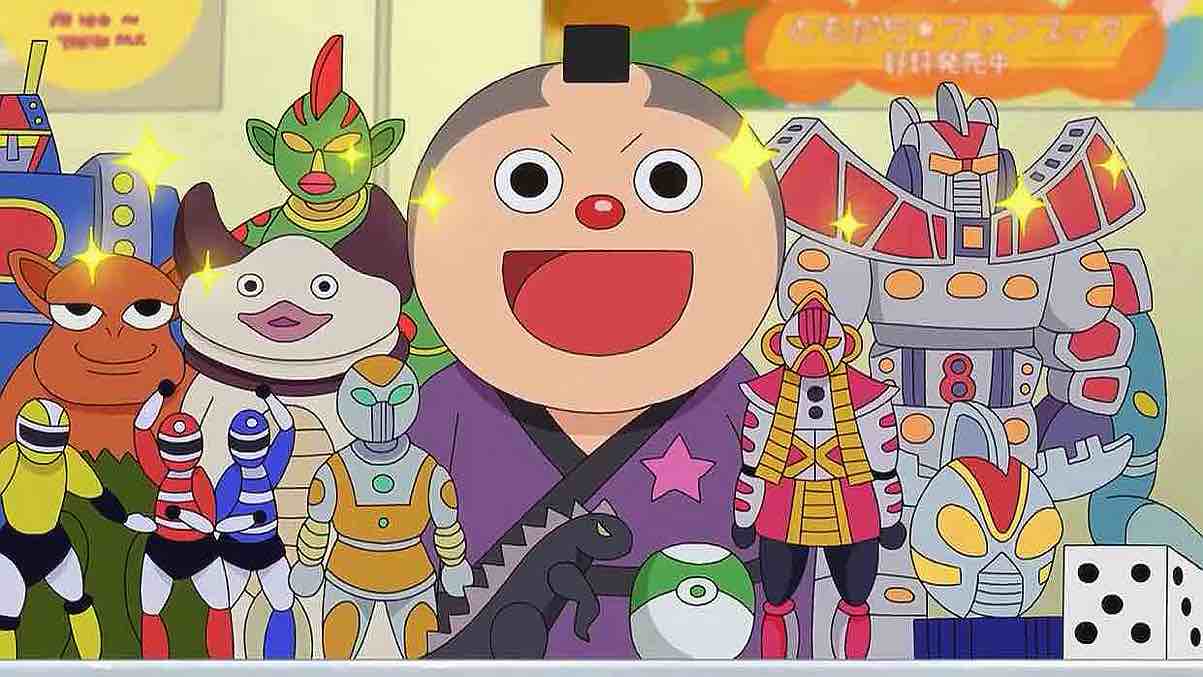
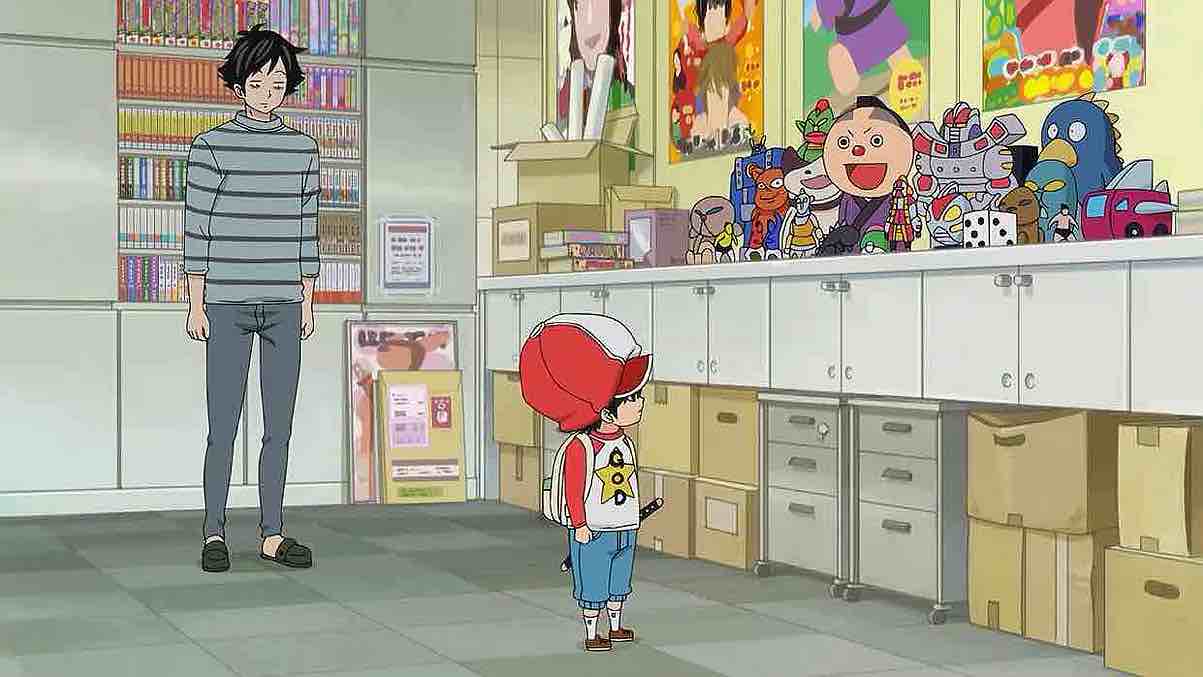
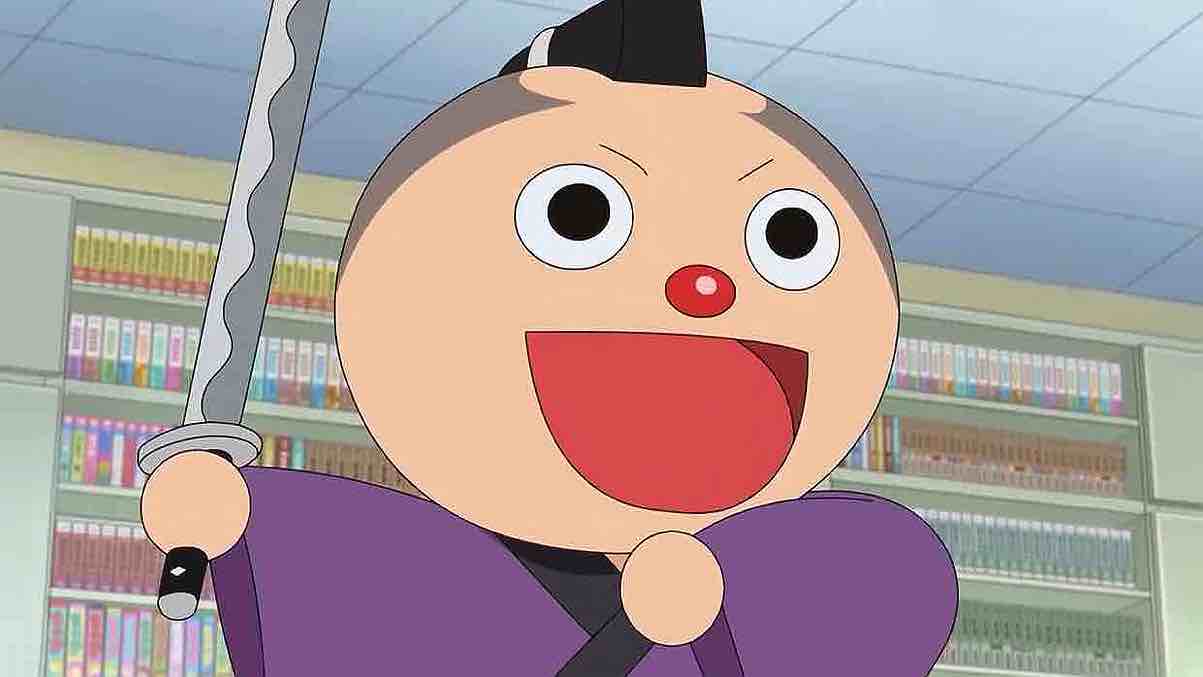
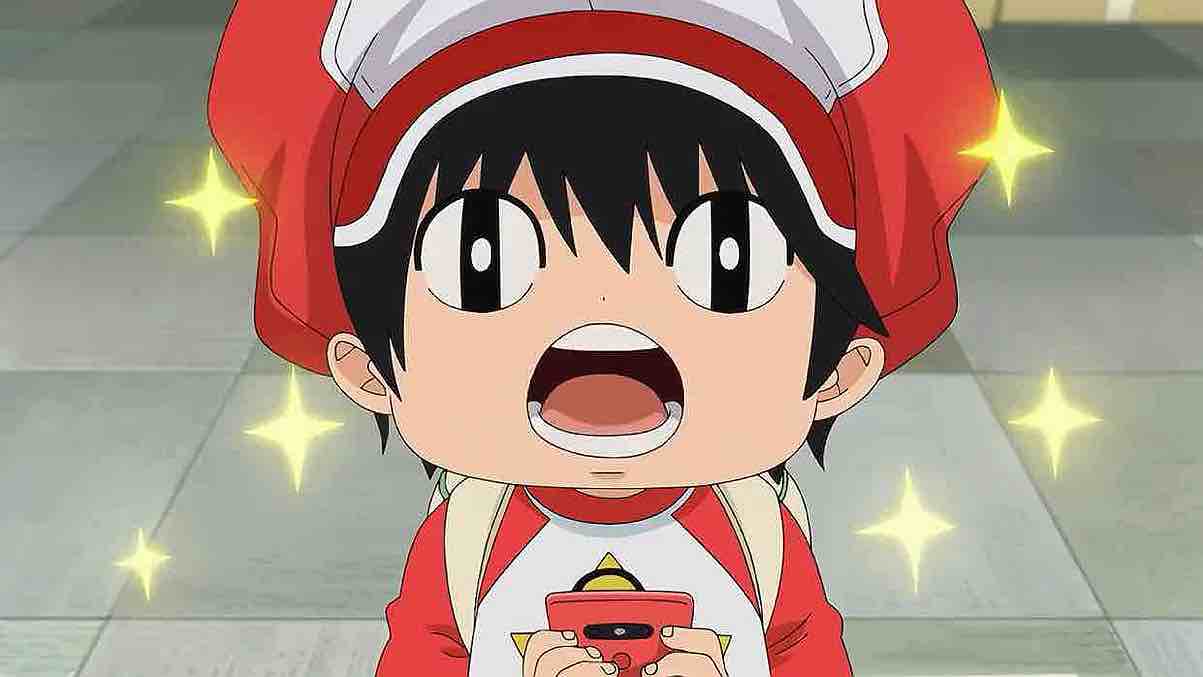
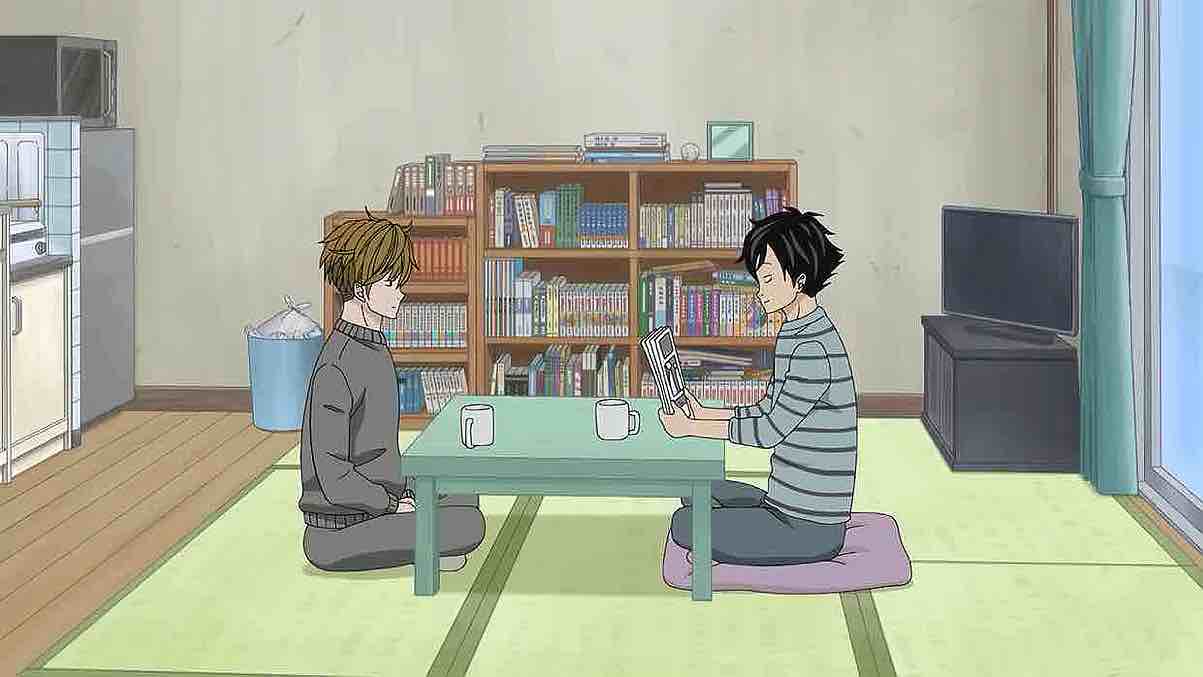


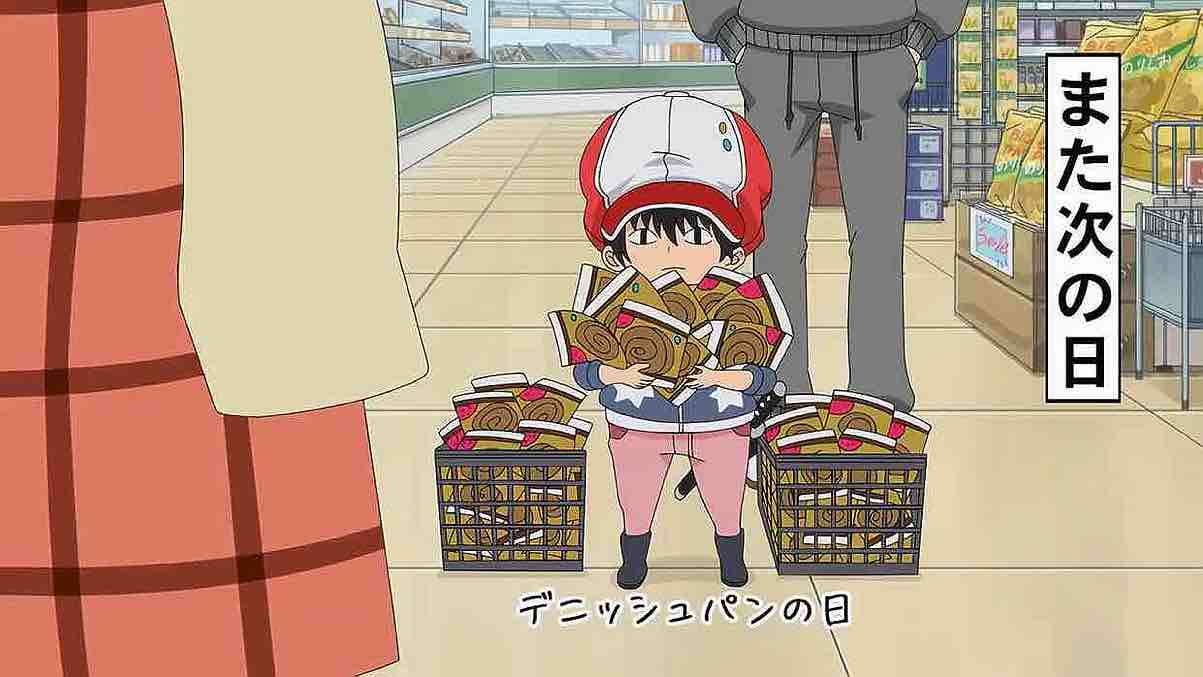
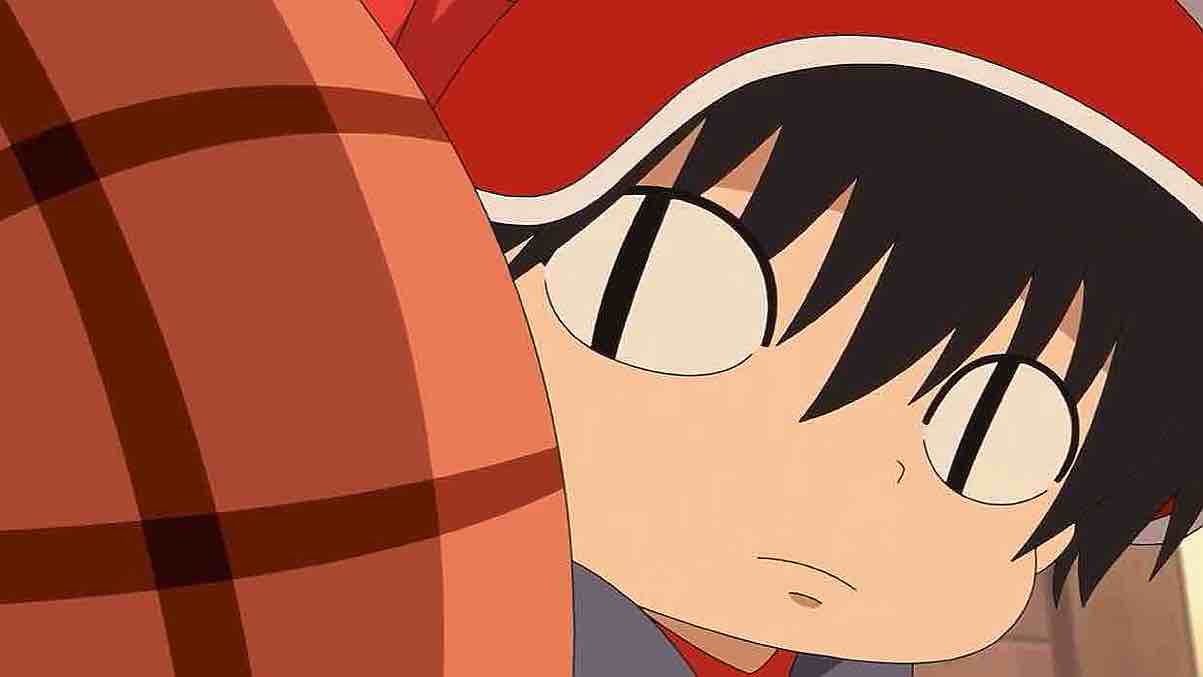
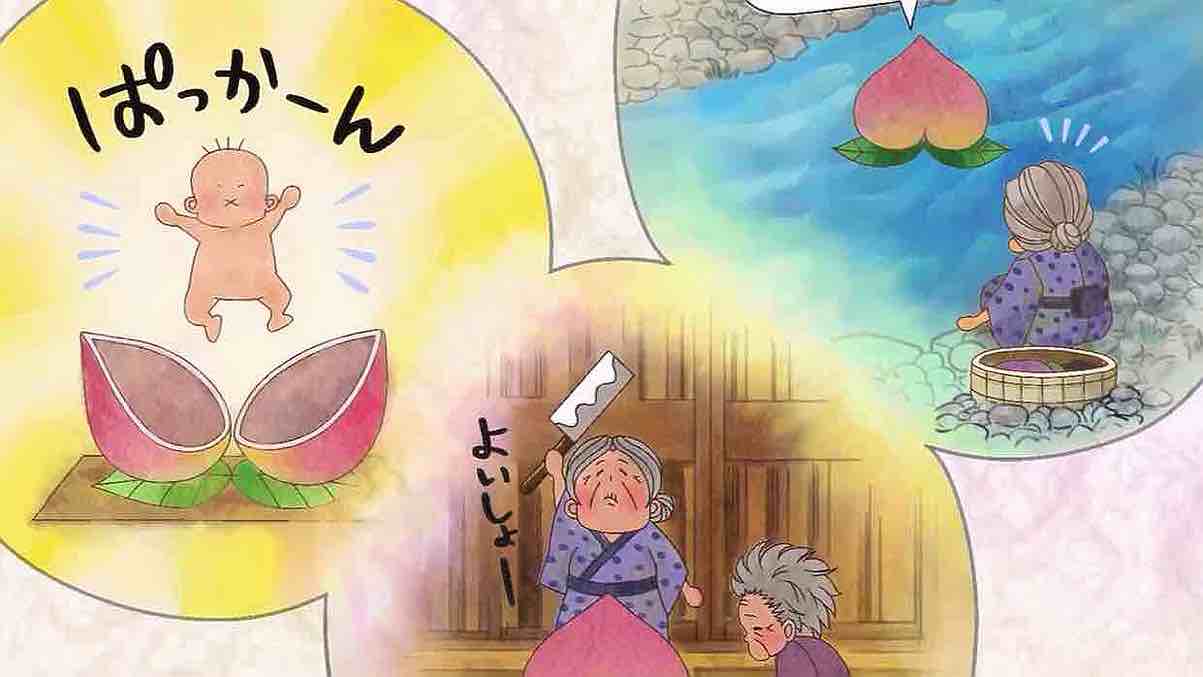
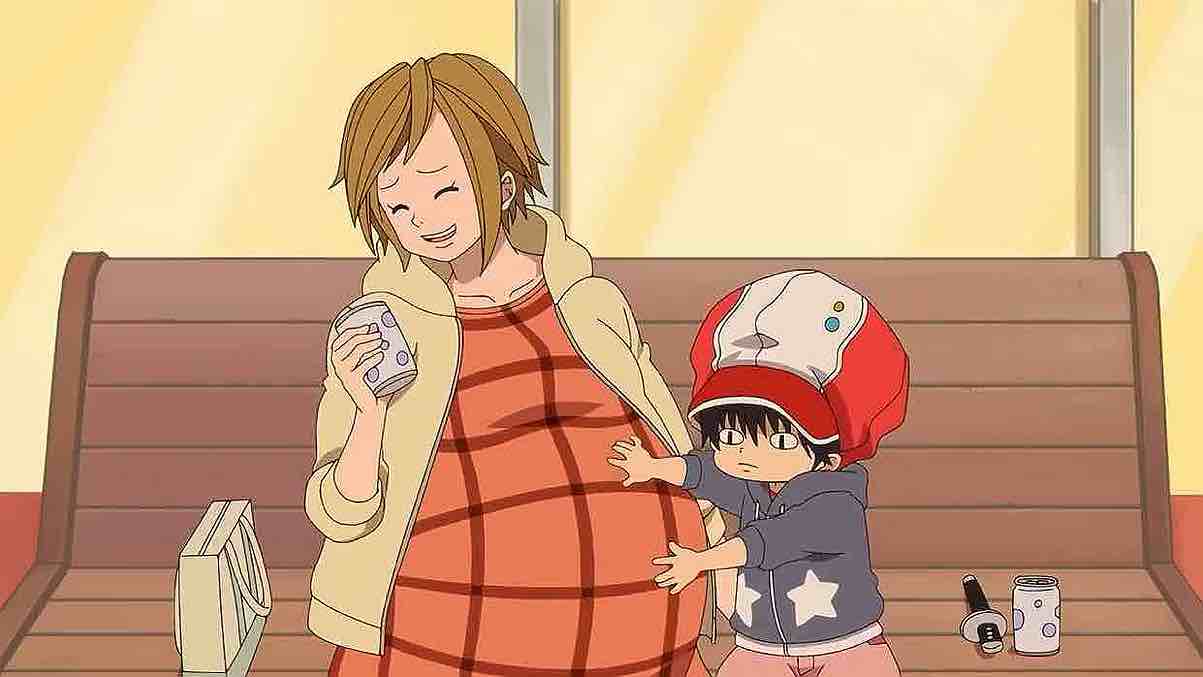
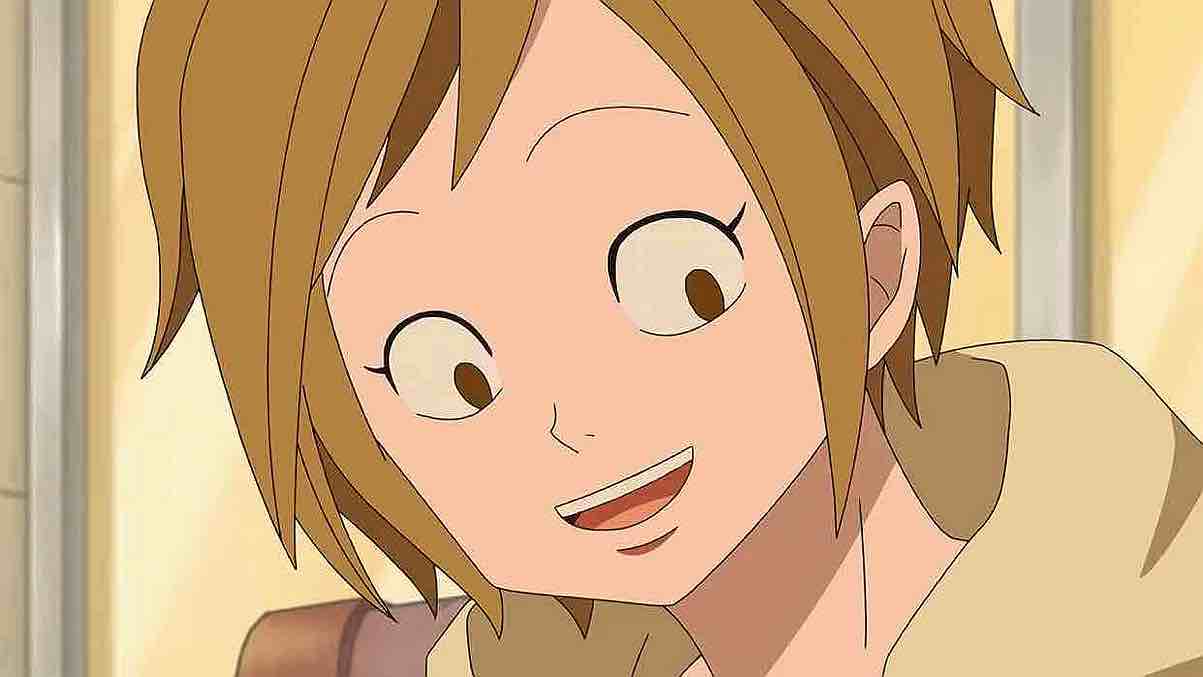
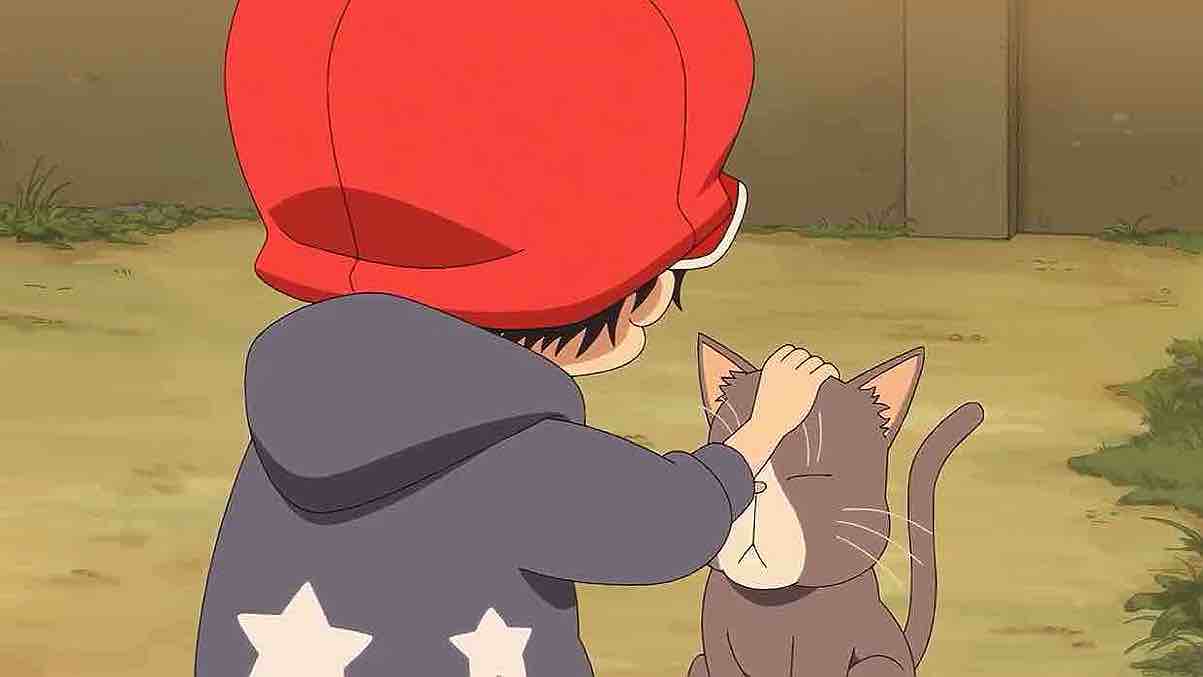
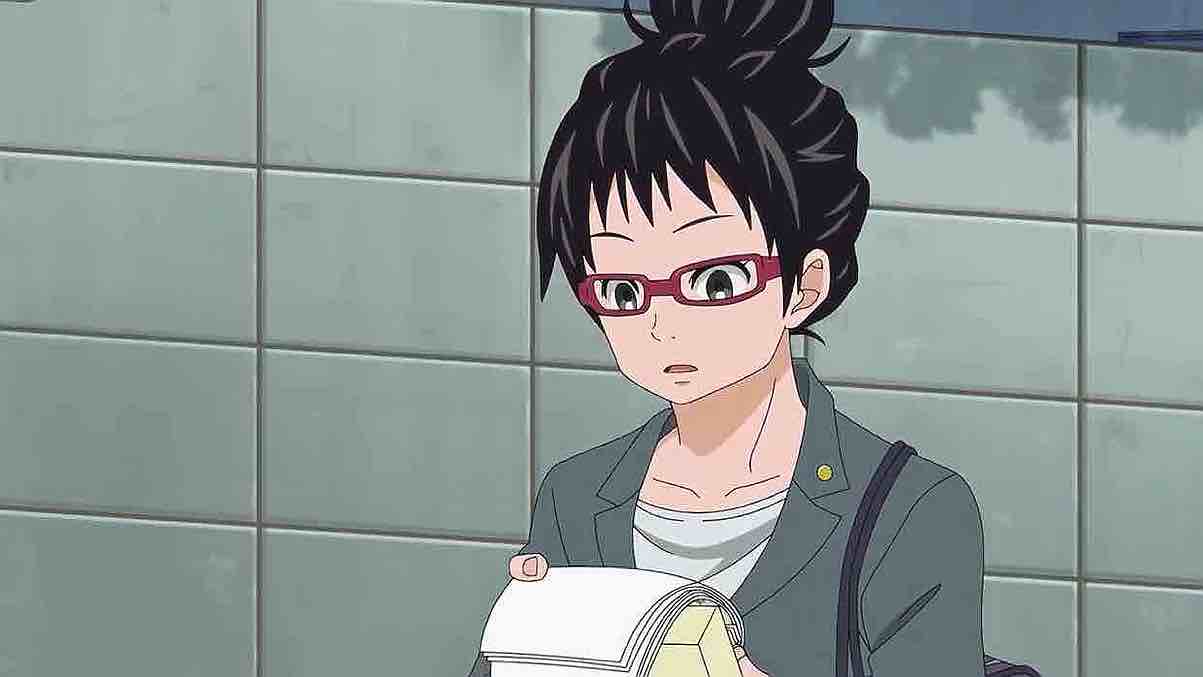




Rob Barrett
March 25, 2022 at 2:02 pmThe tissue eating is a form of pica (a variety called xylophagia), an eating disorder often seen in children suffering from malnourishment and abuse. There’s a lot in this show that I wish I didn’t have to know, but it’s necessary to learn nonetheless.
Guardian Enzo
March 25, 2022 at 2:05 pmUgh.
As I said I went through some serious hunger issues when I was a kid – 3-4 days without food on occasion – so that bit really hit home for me.